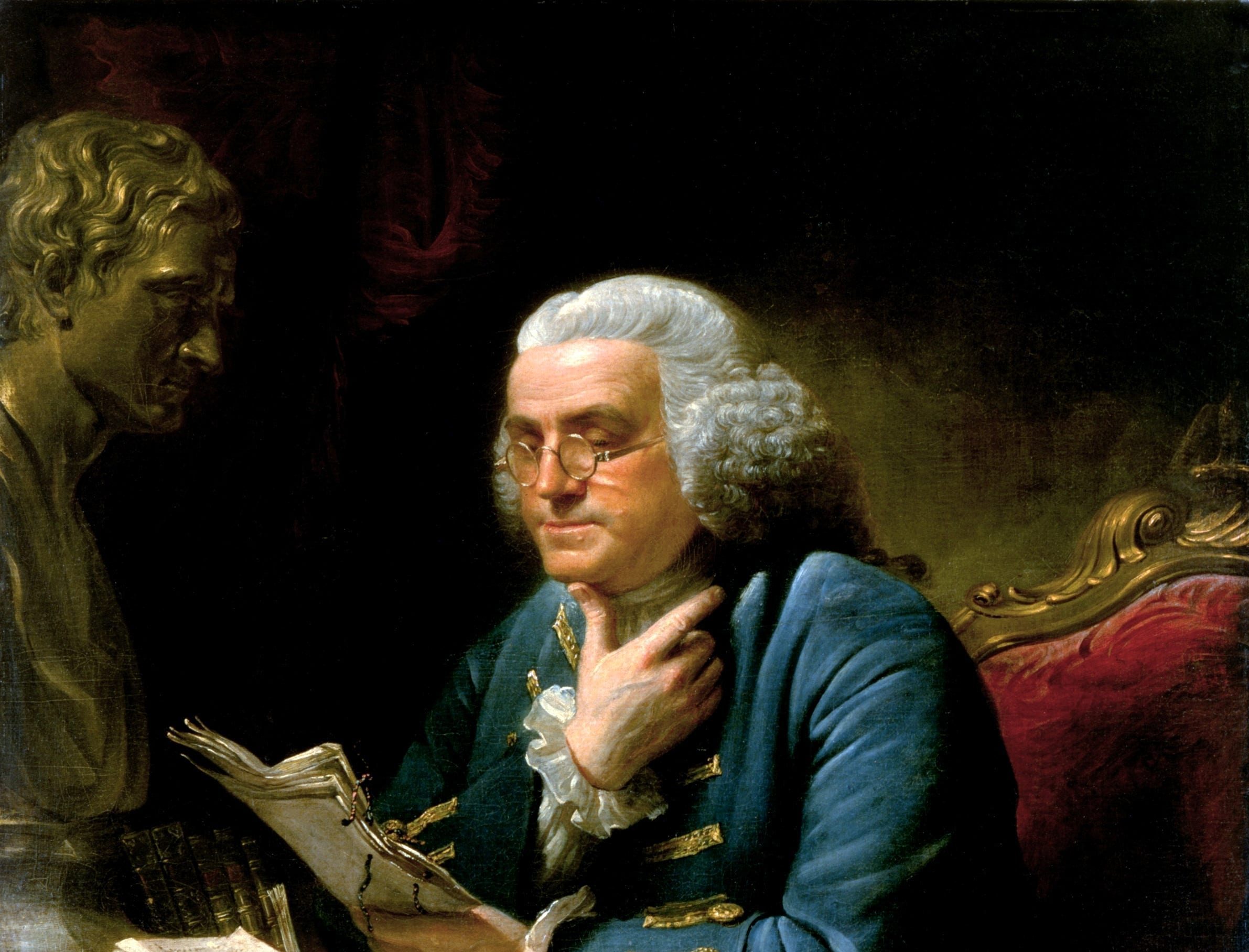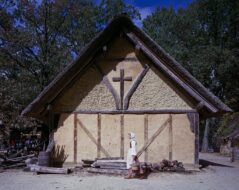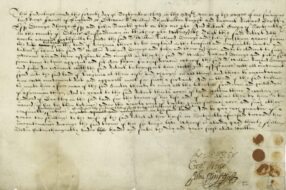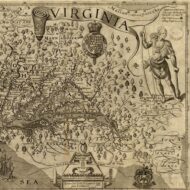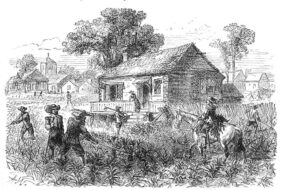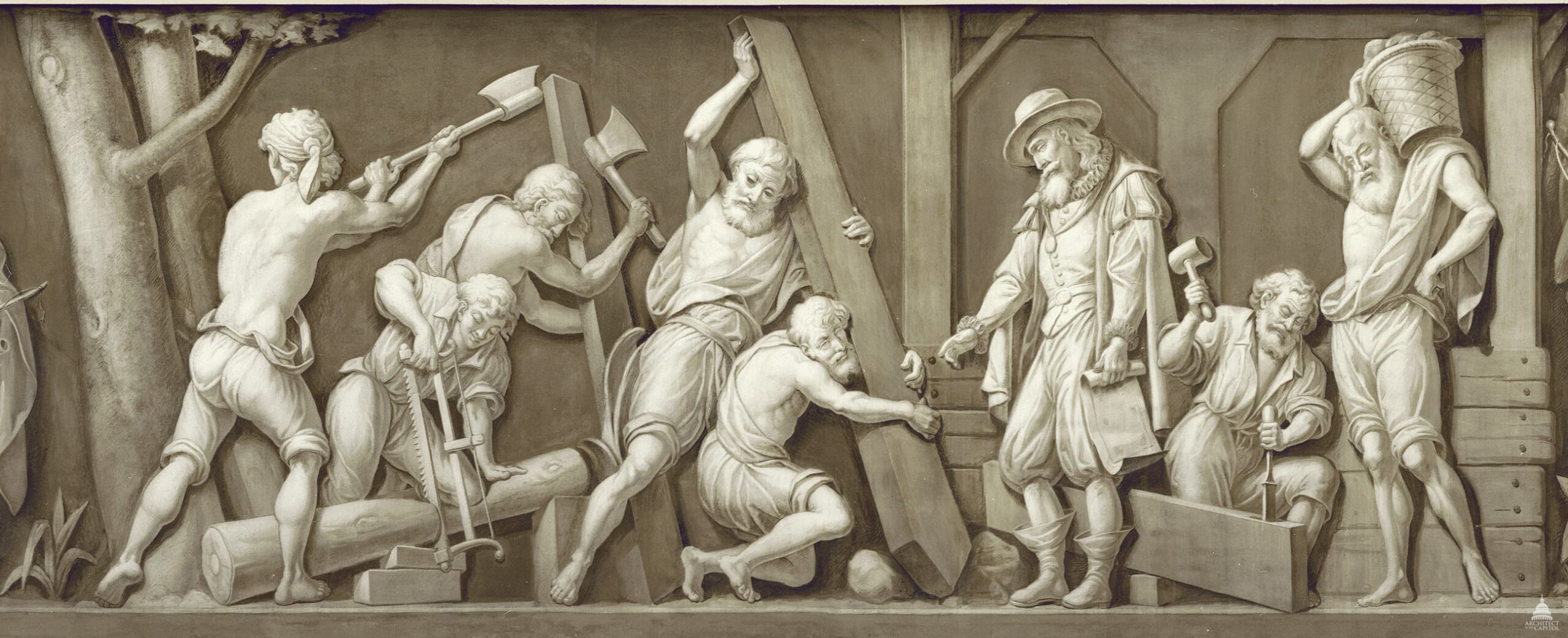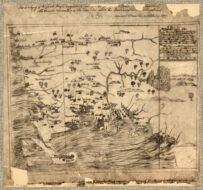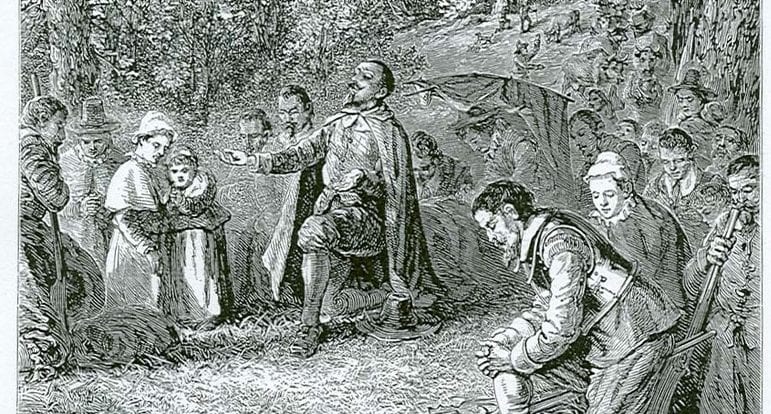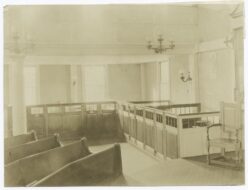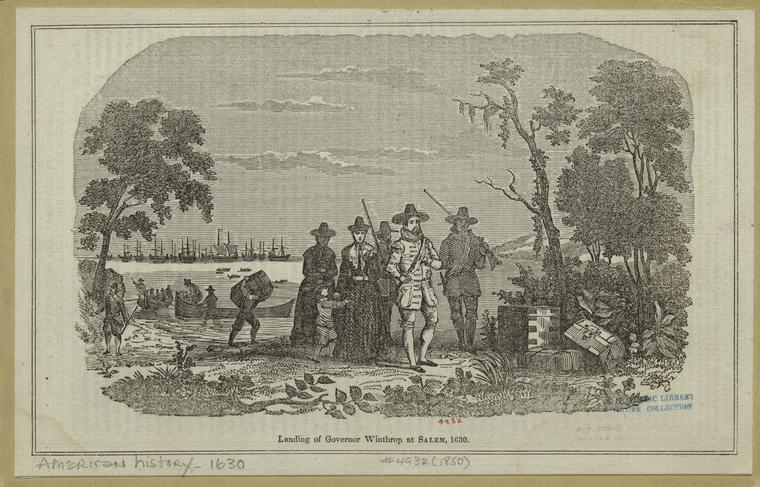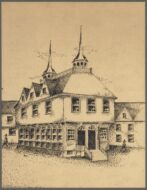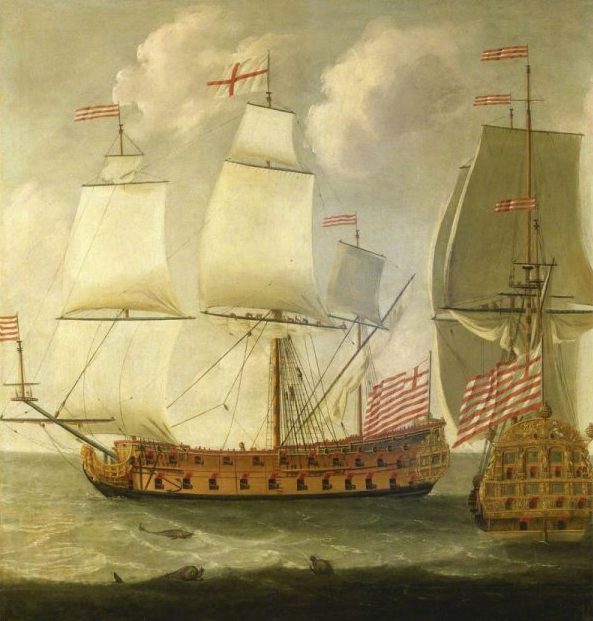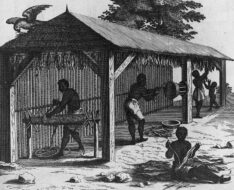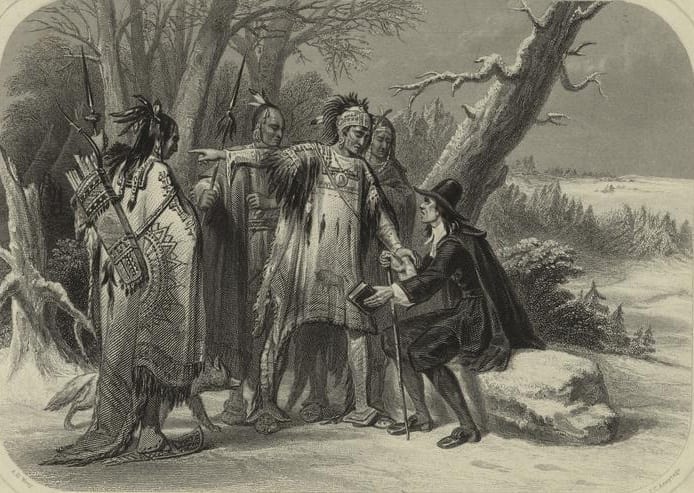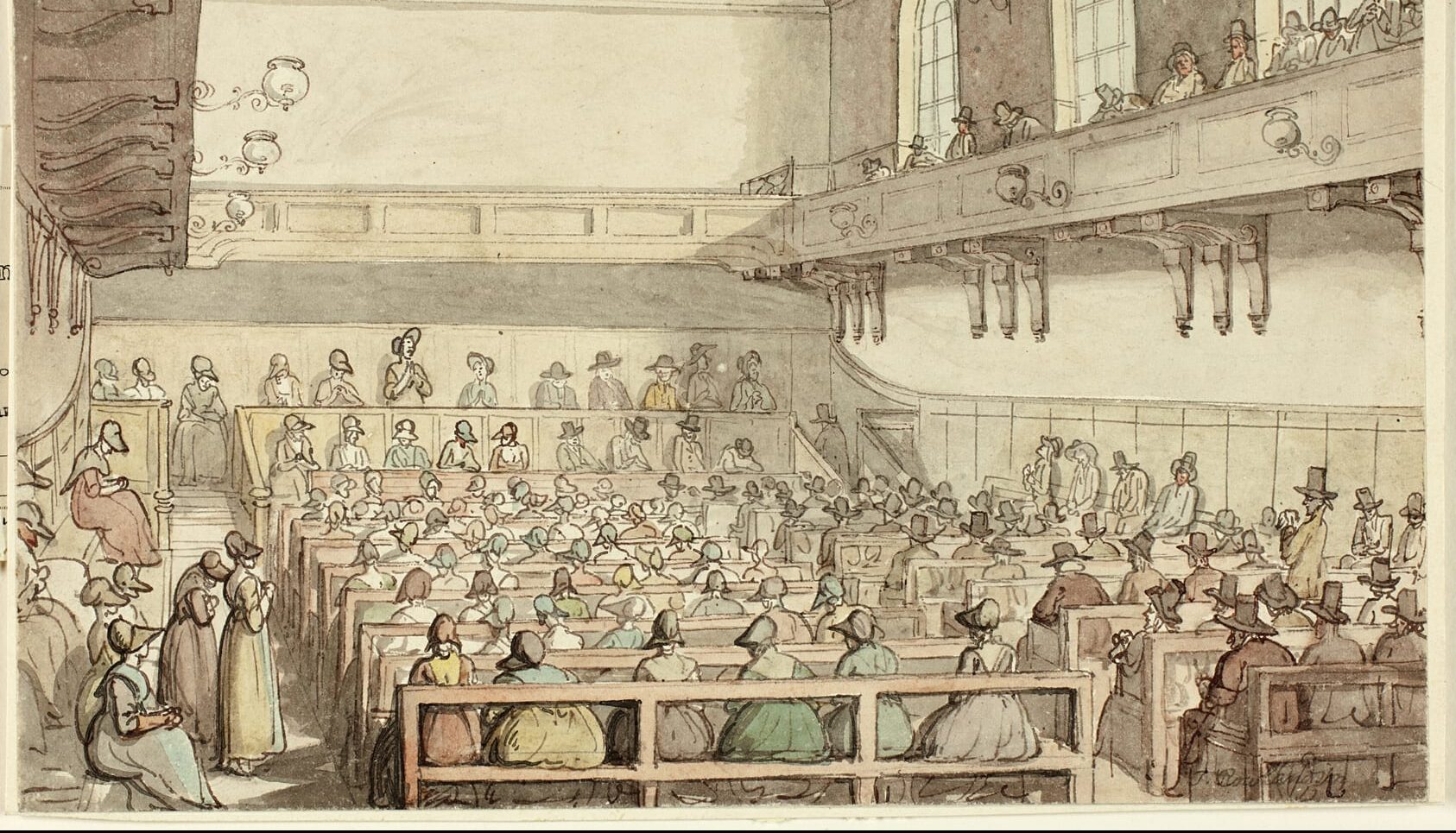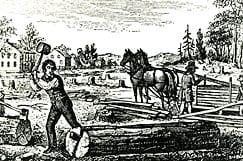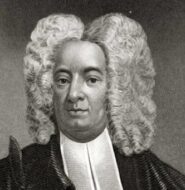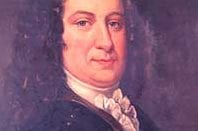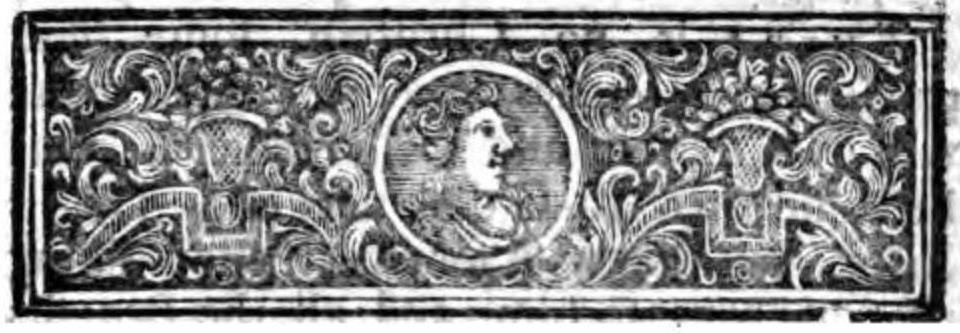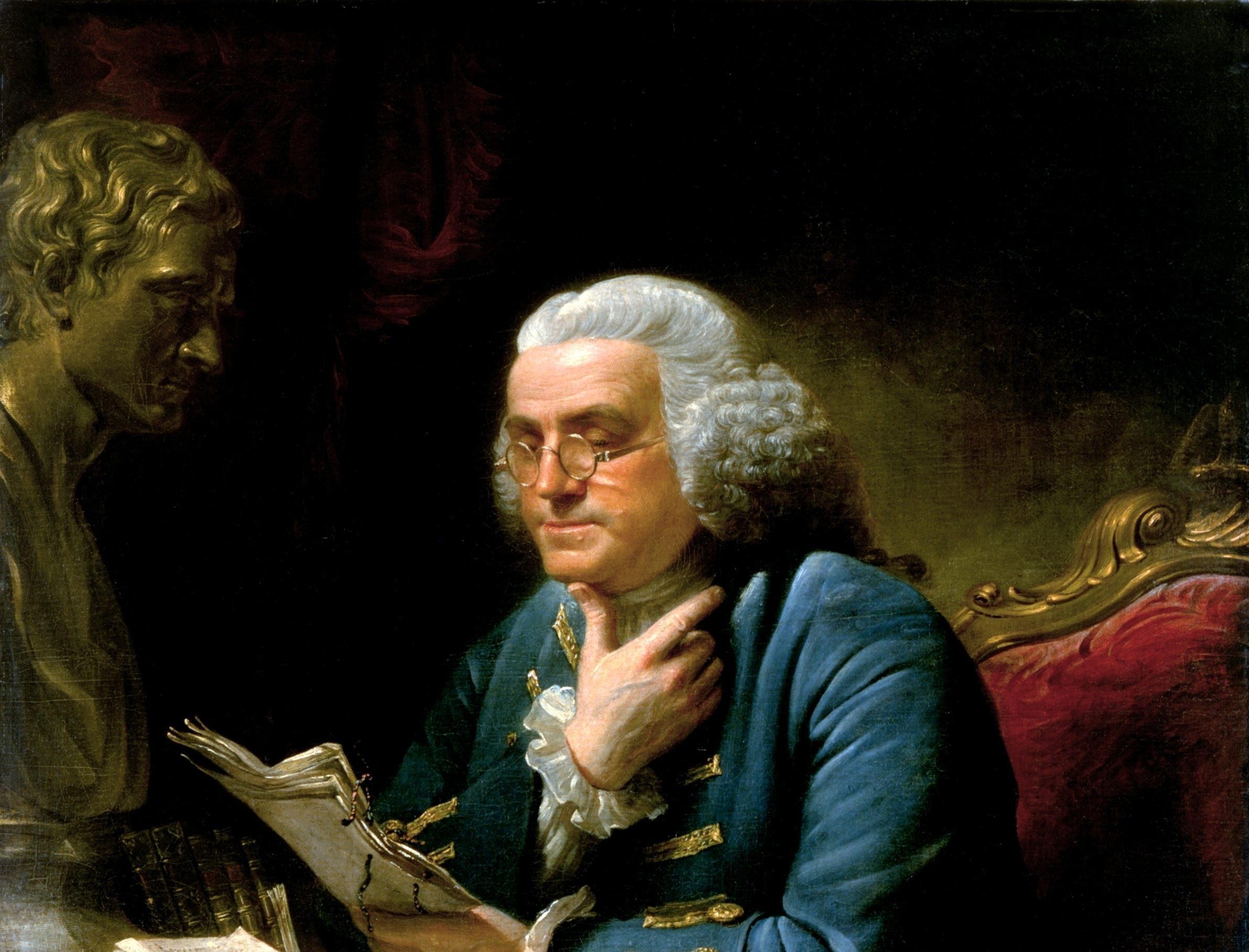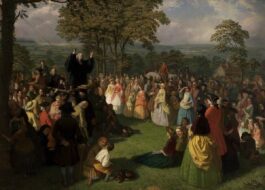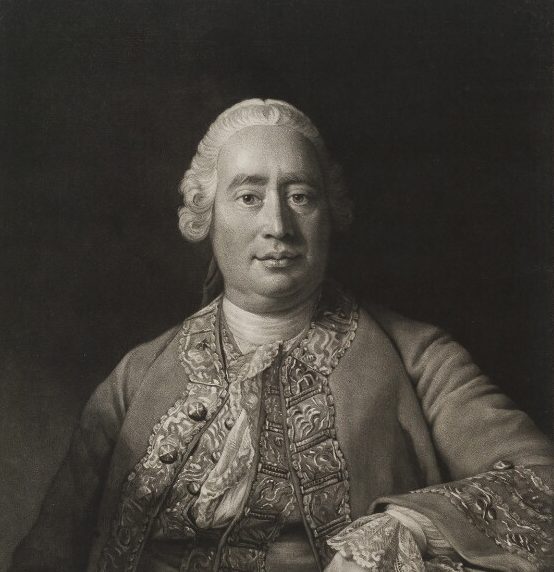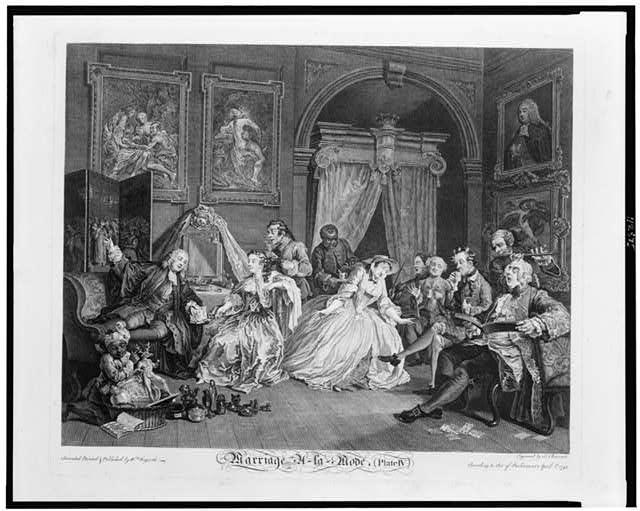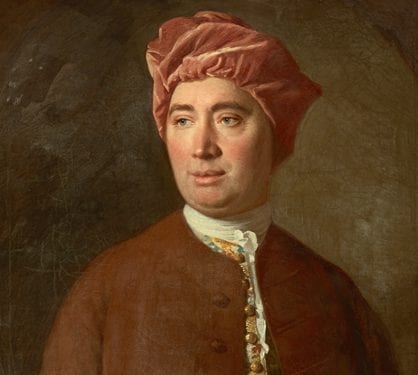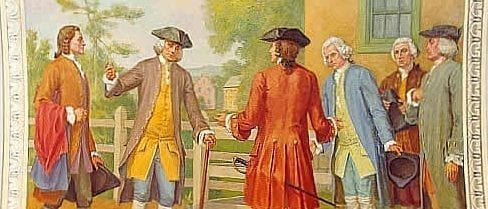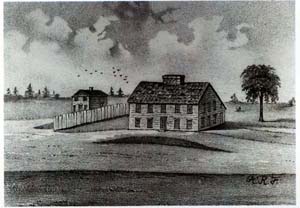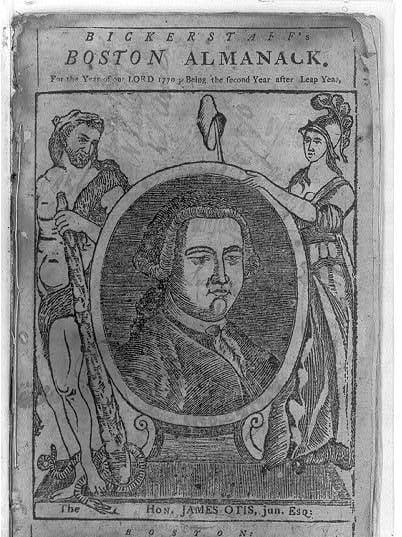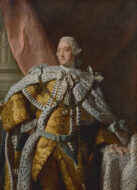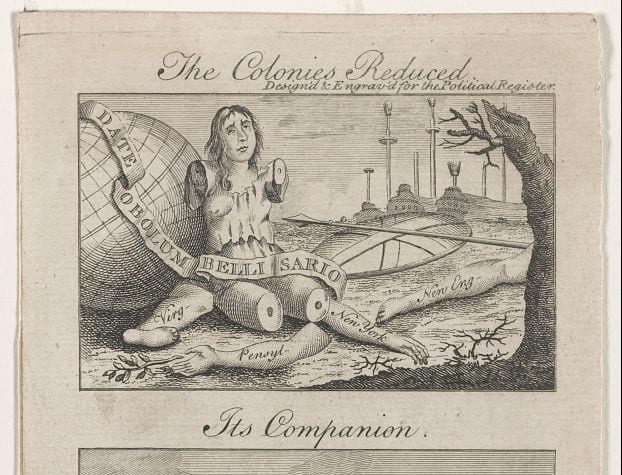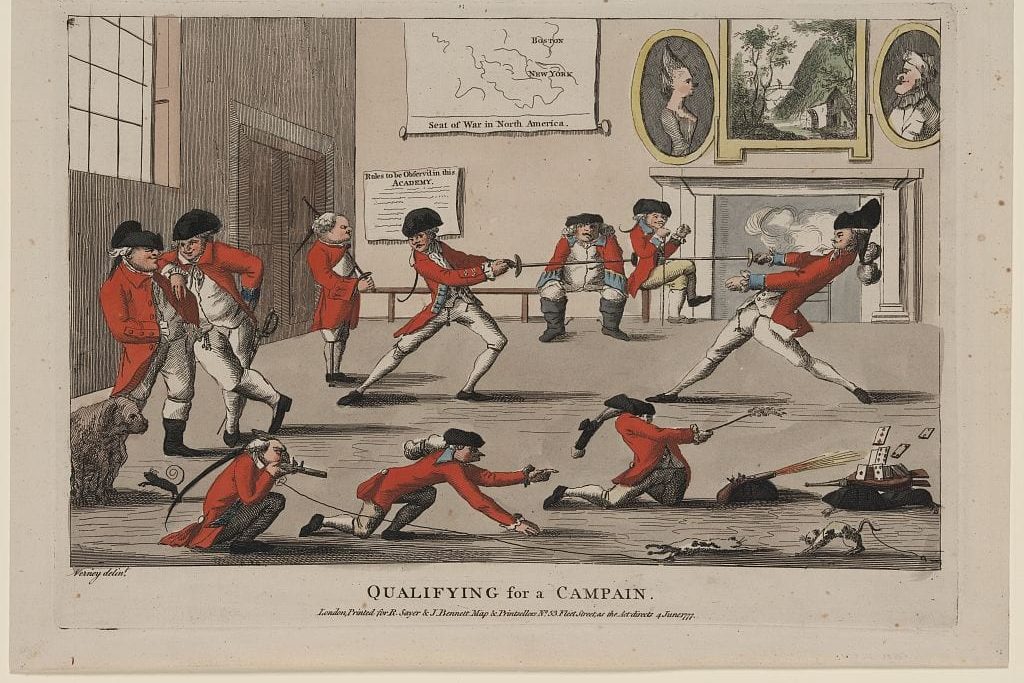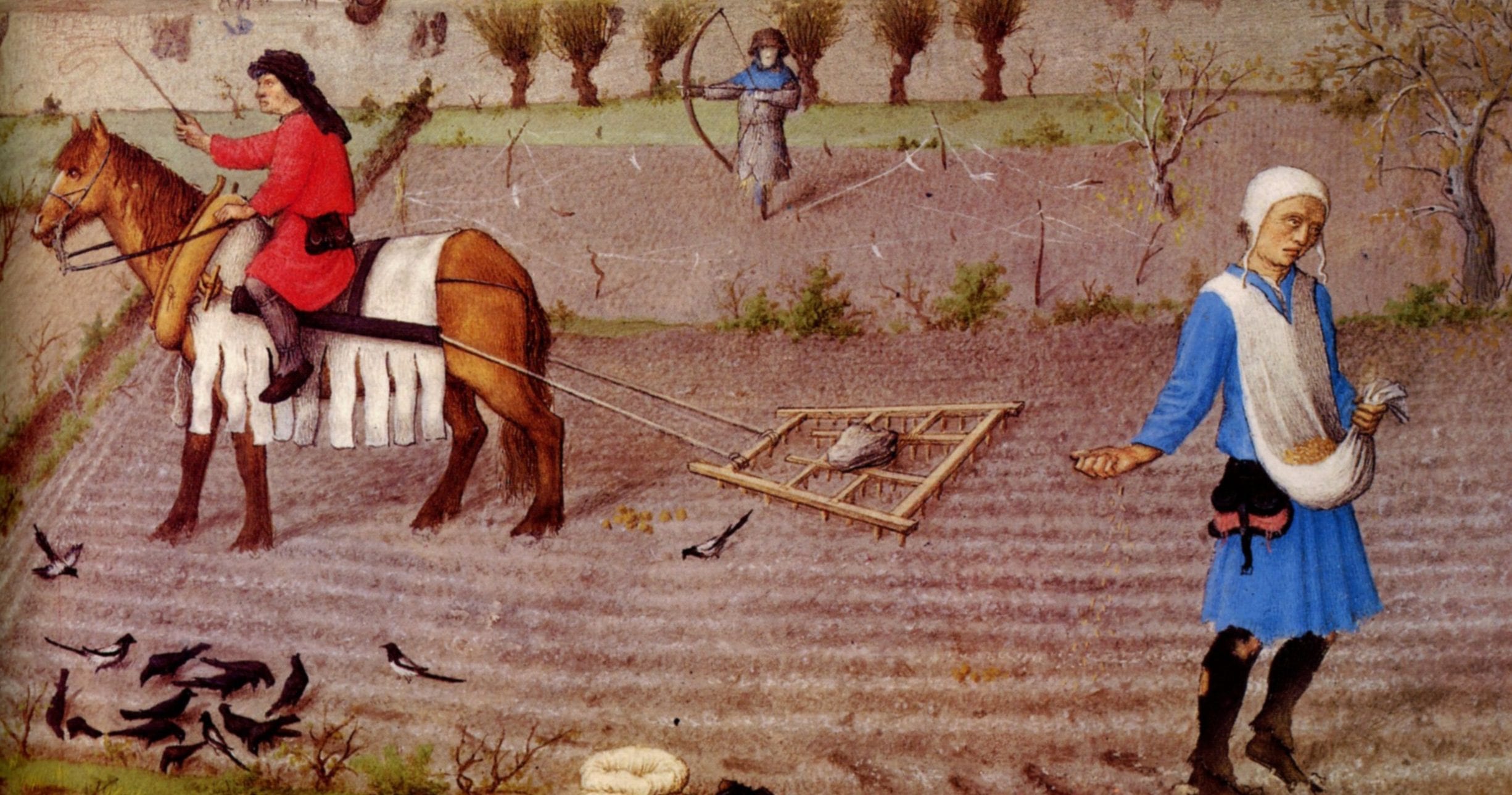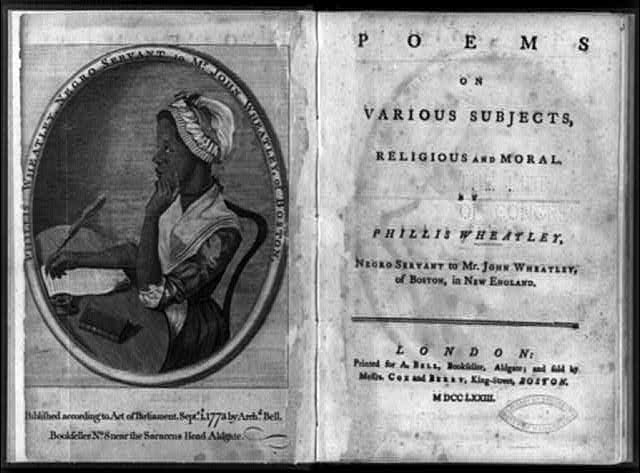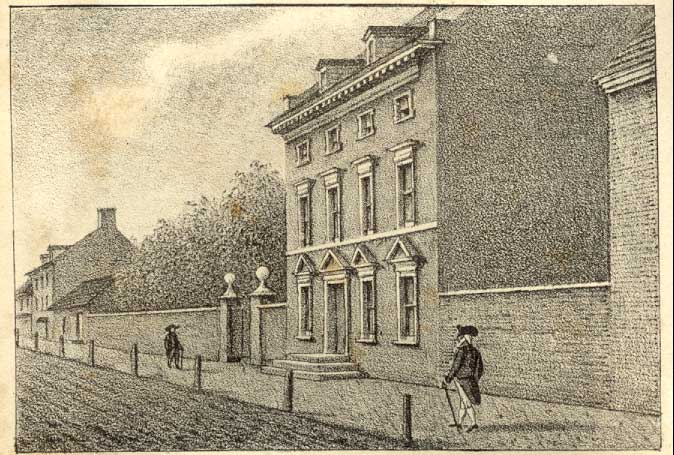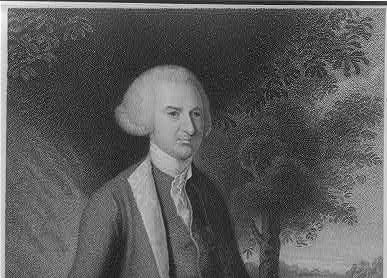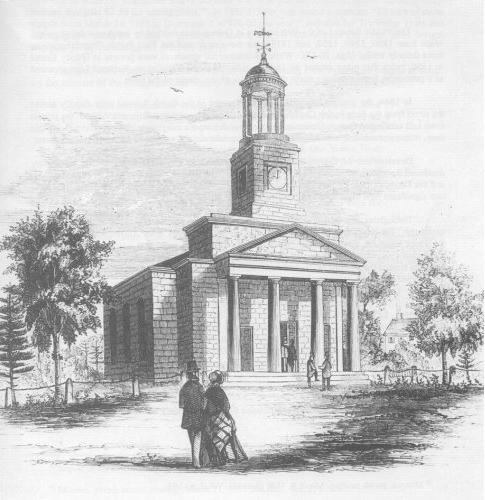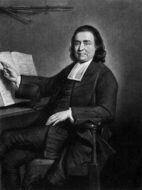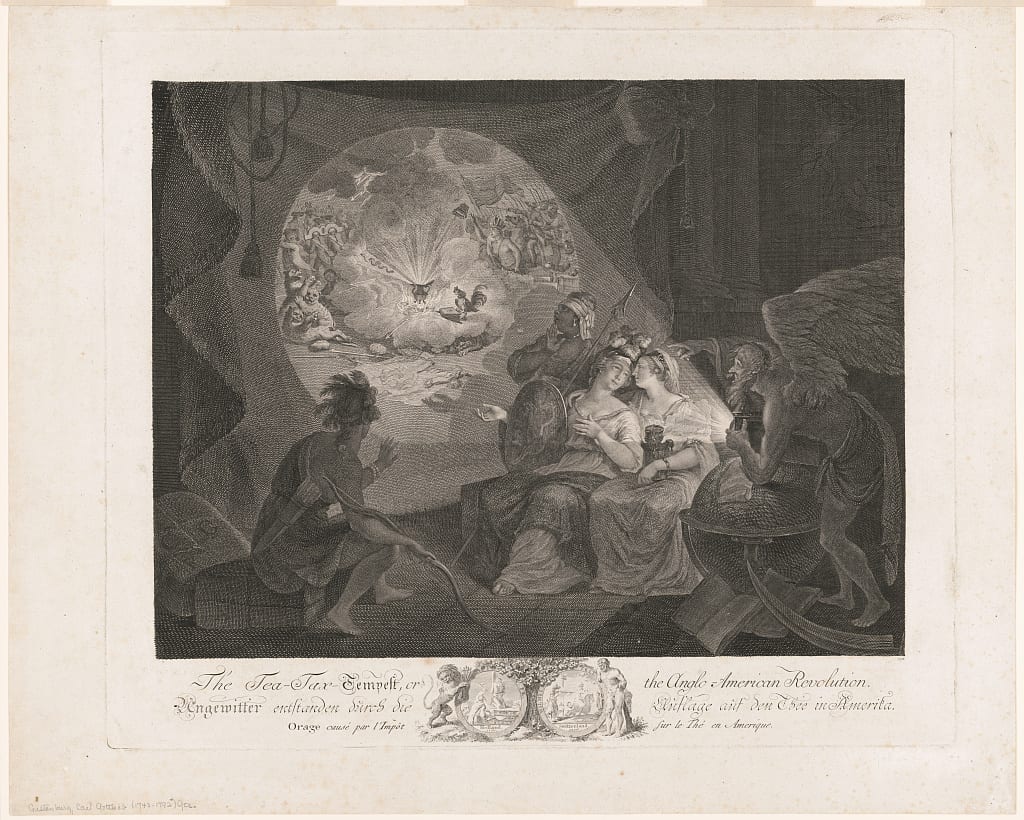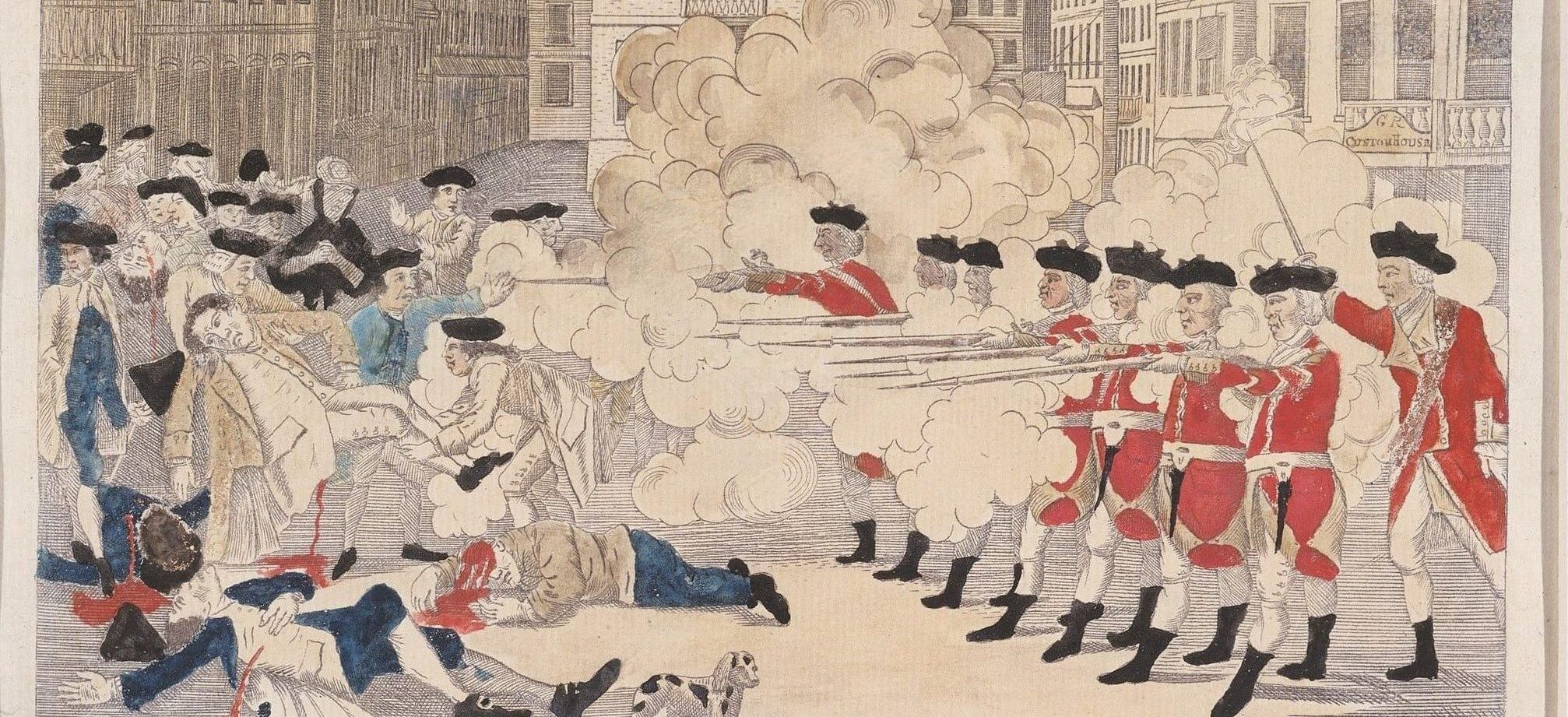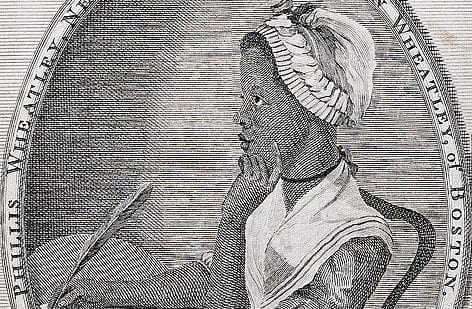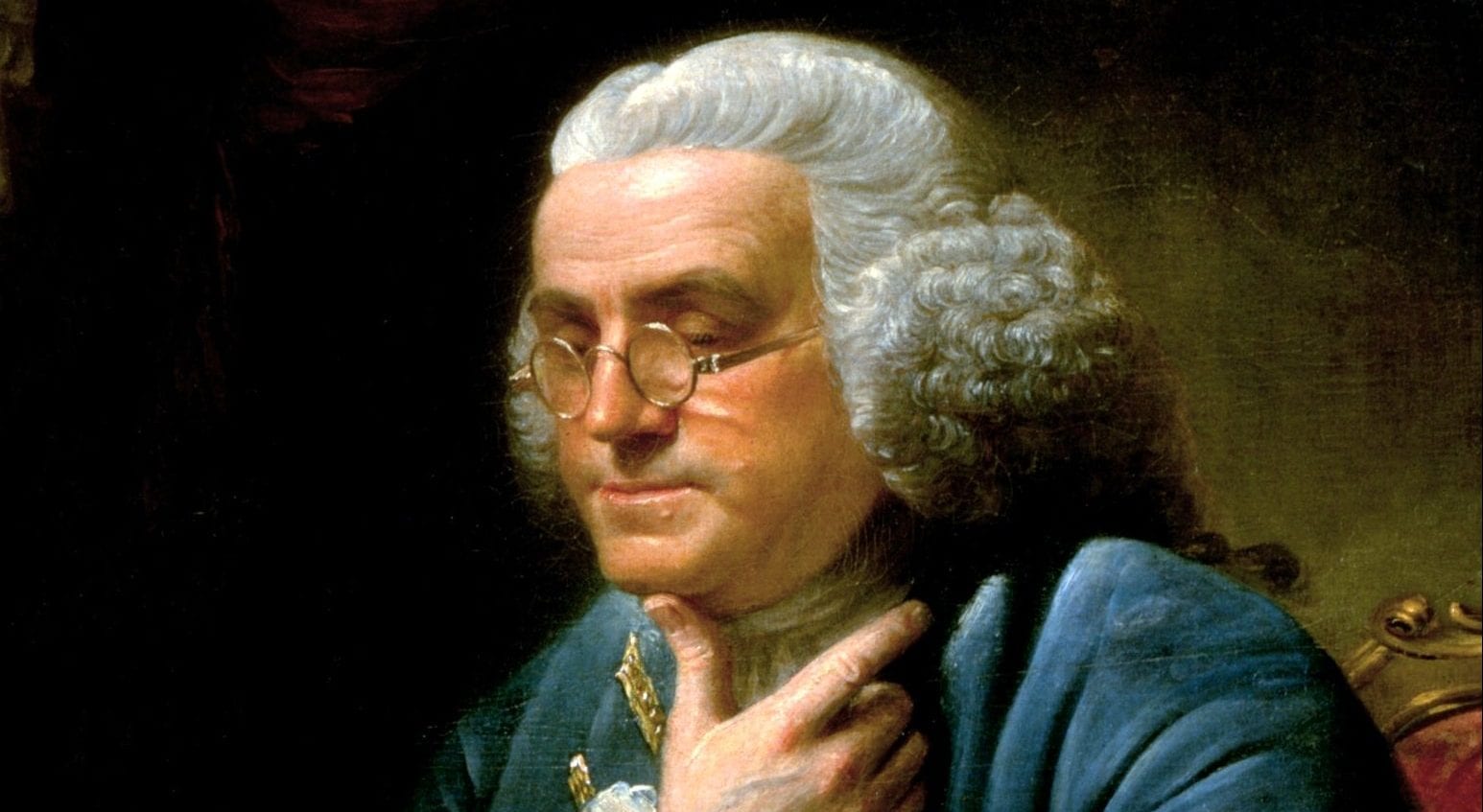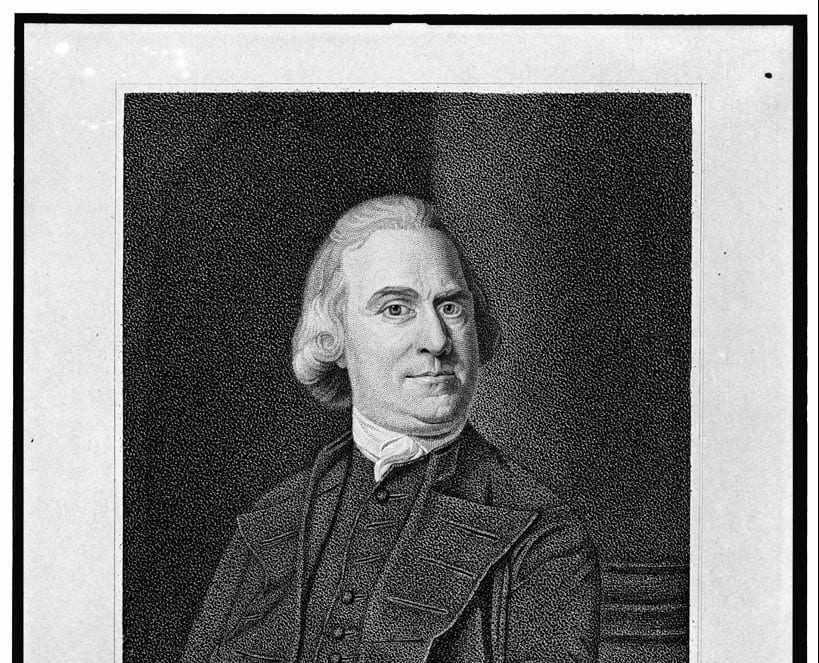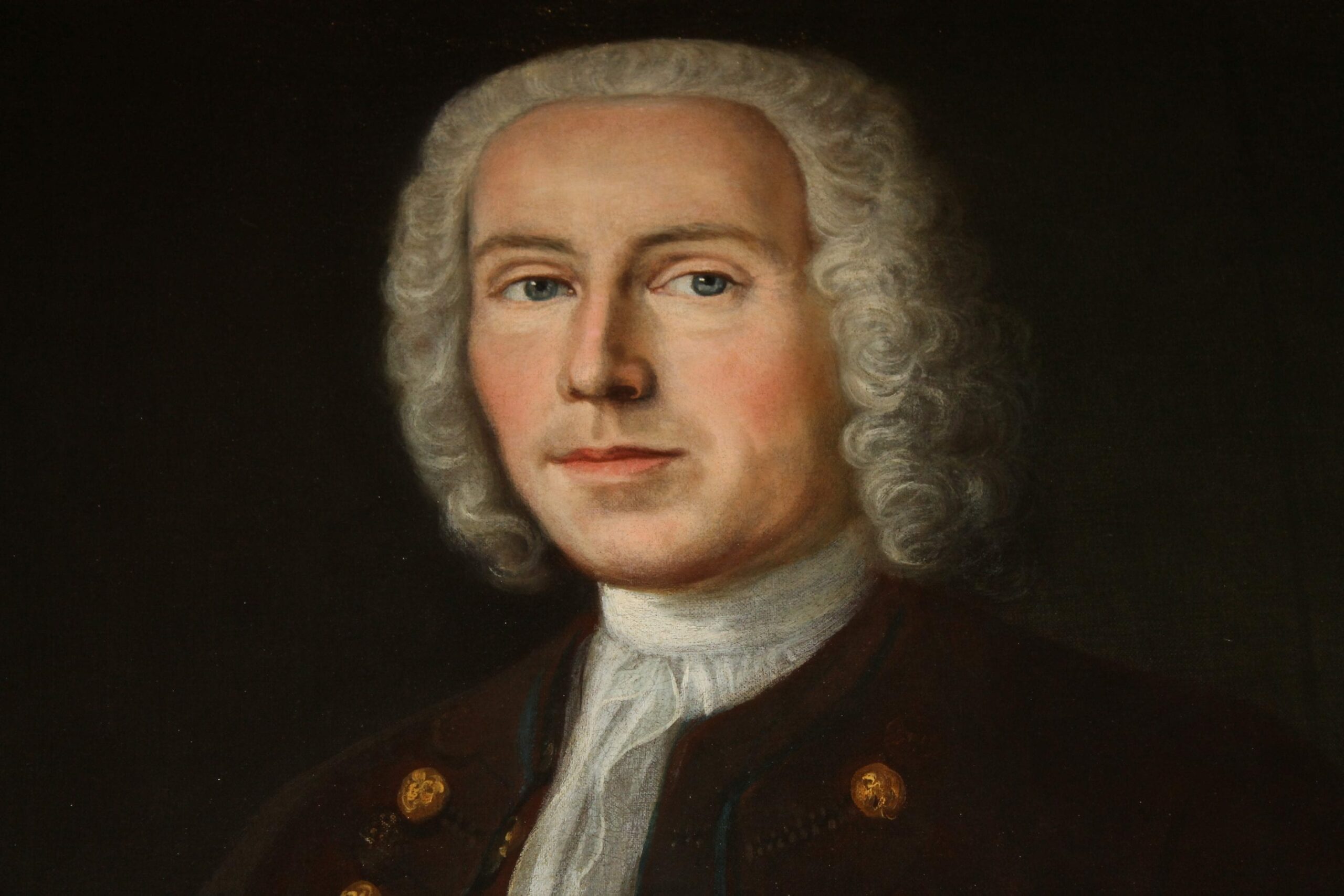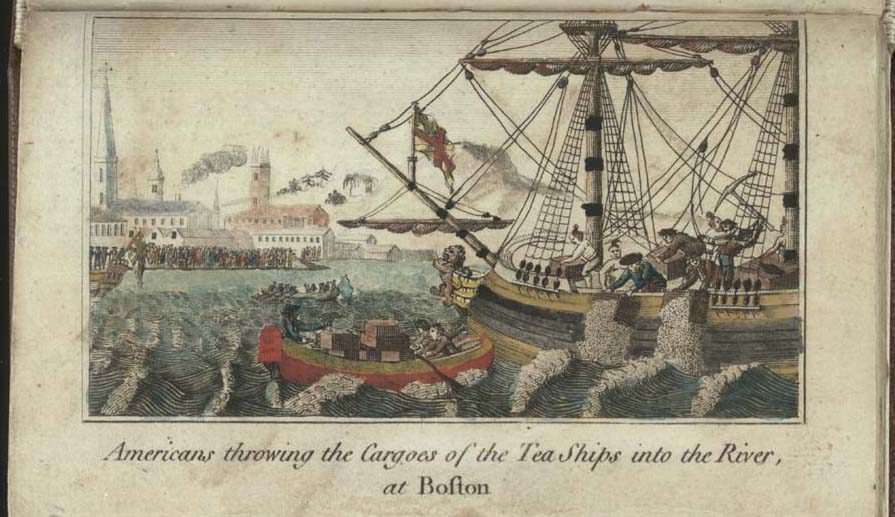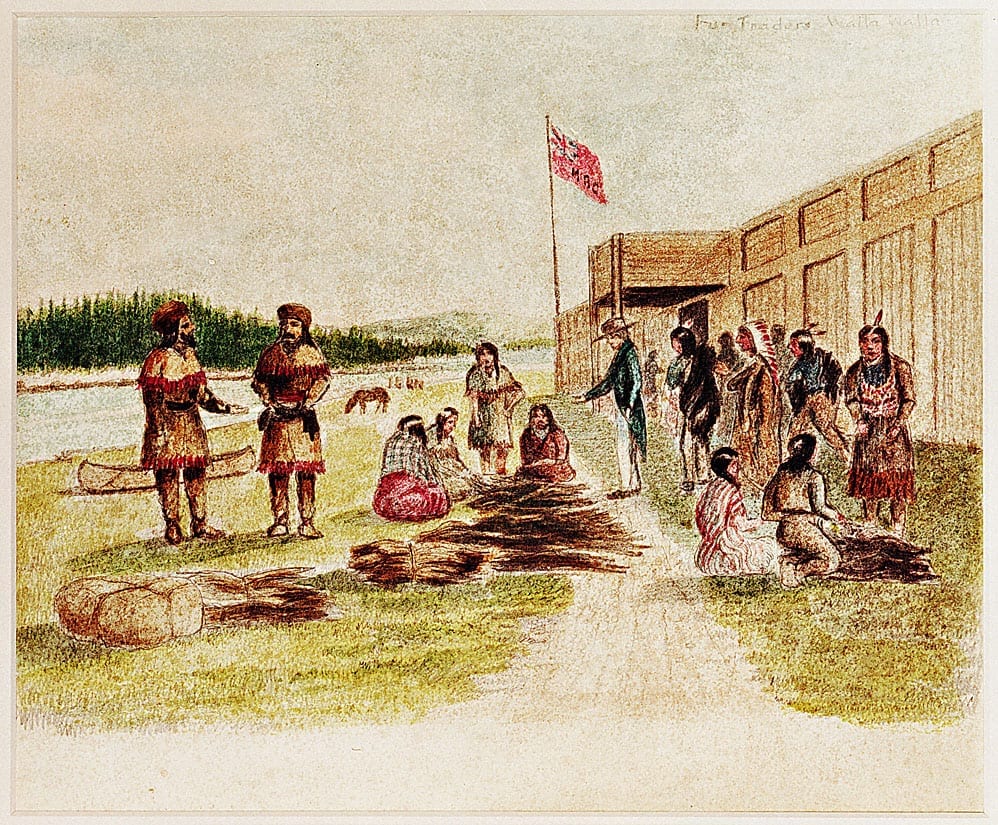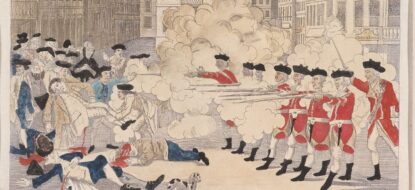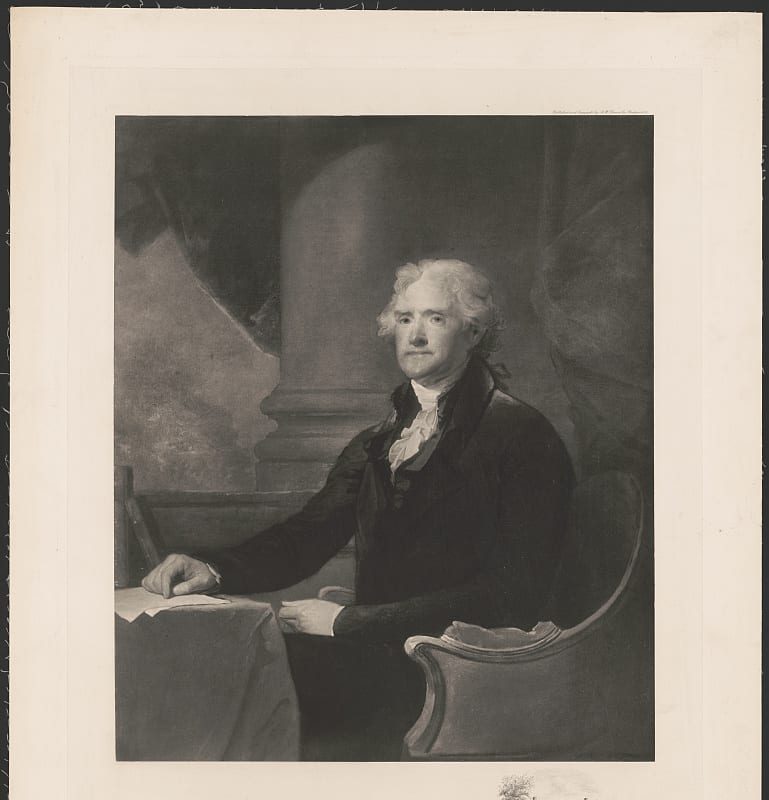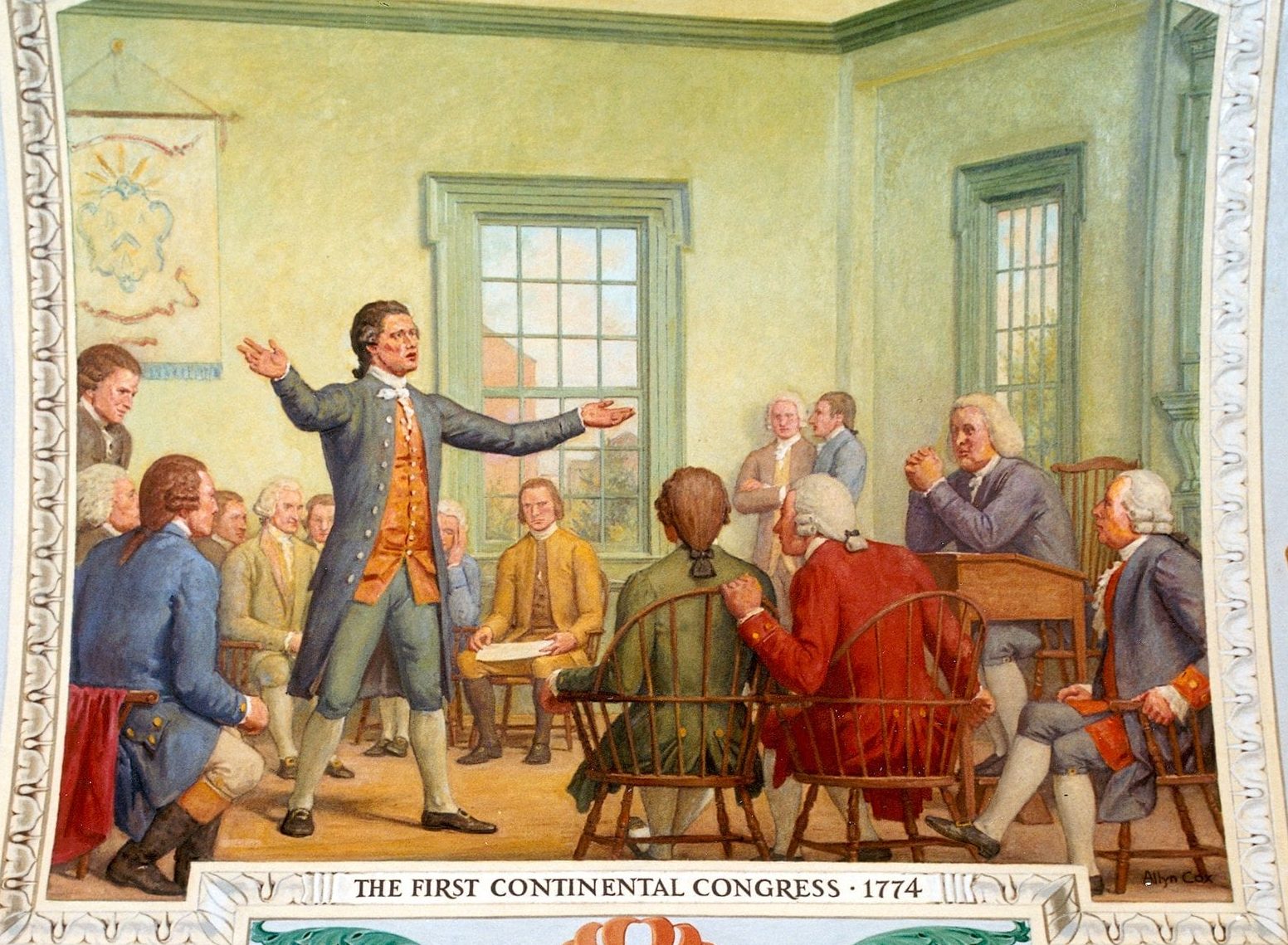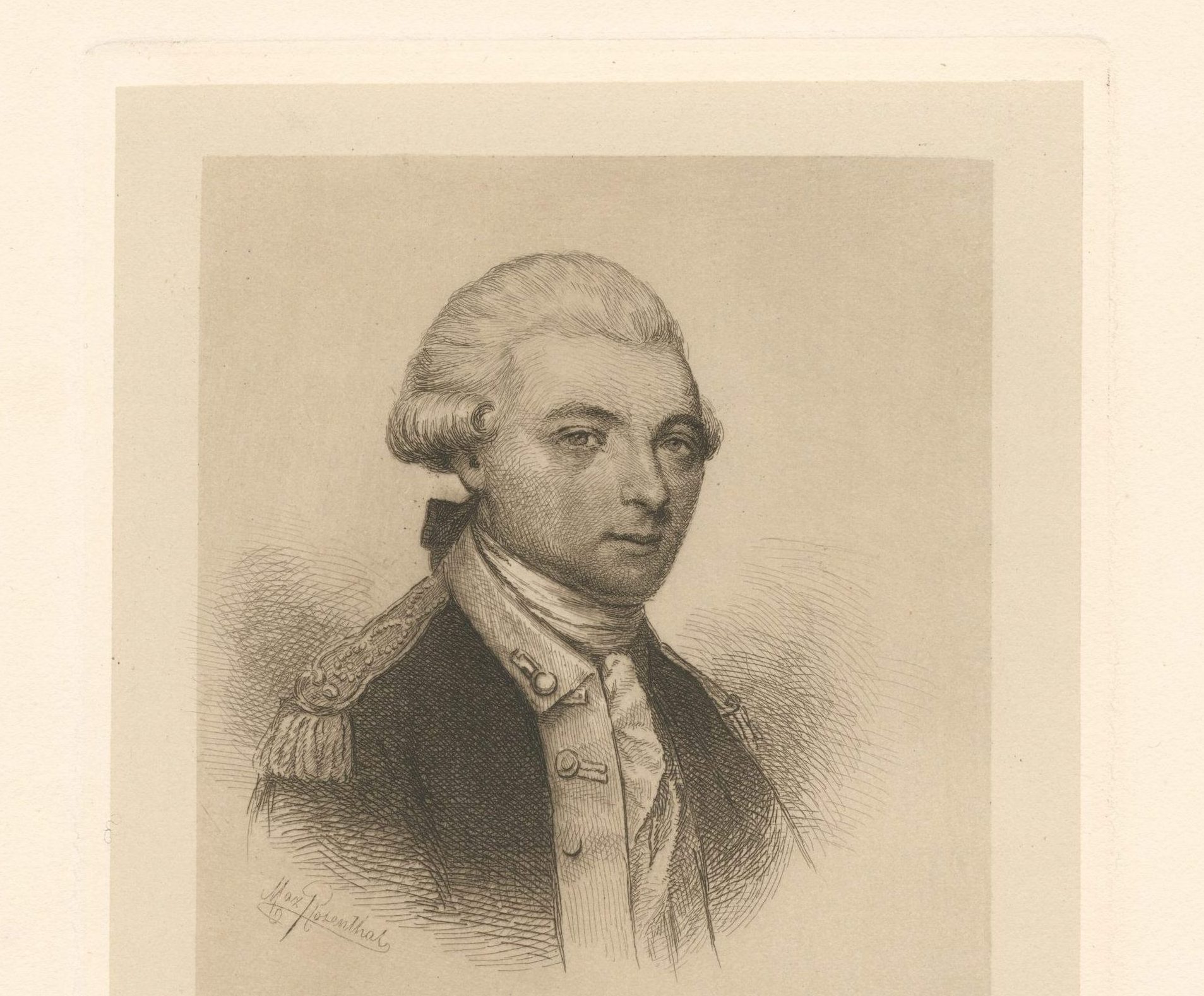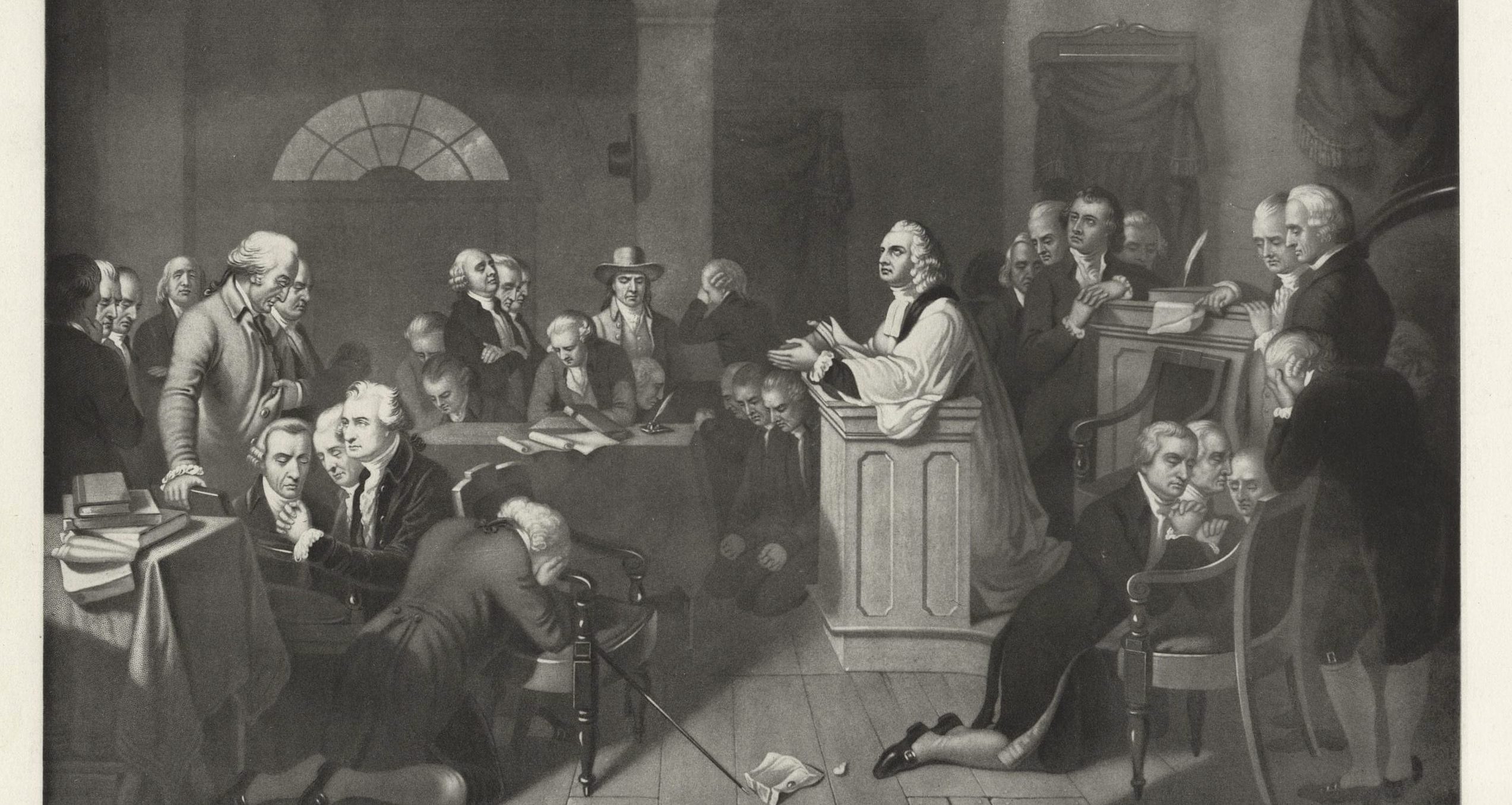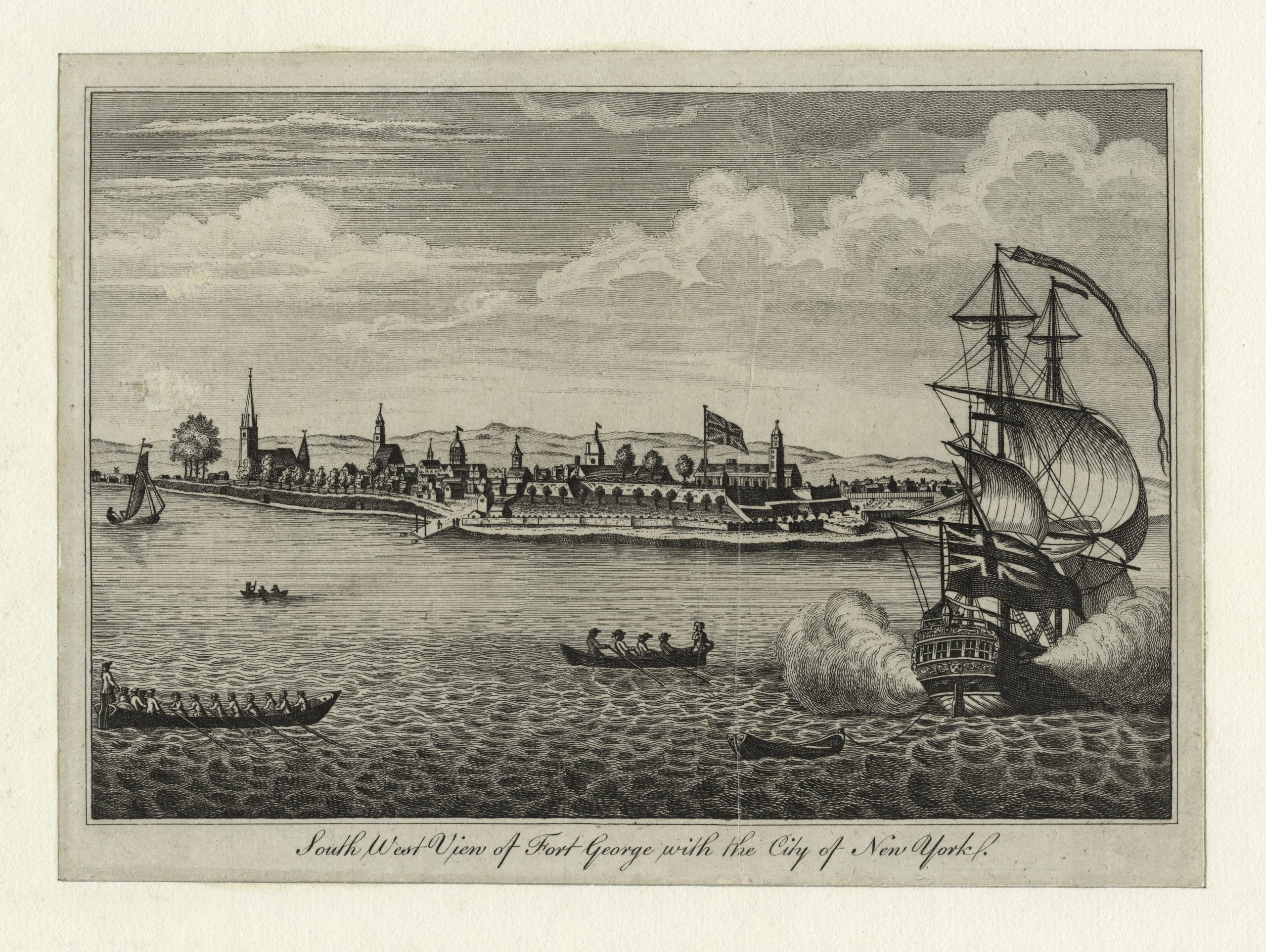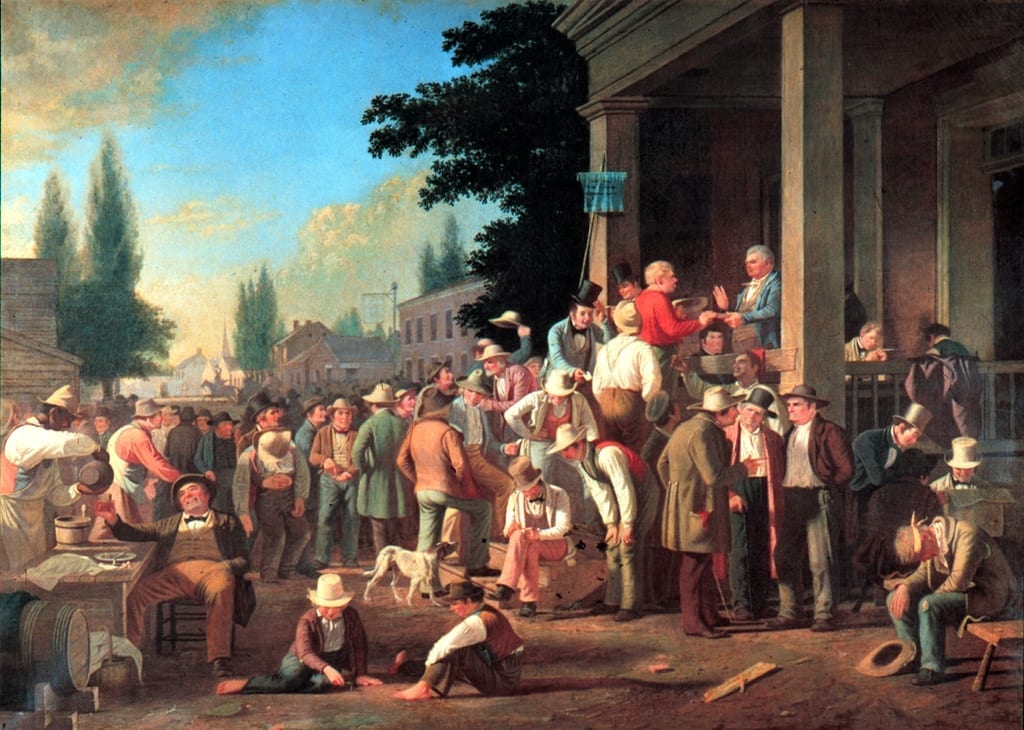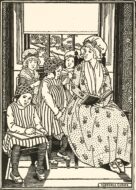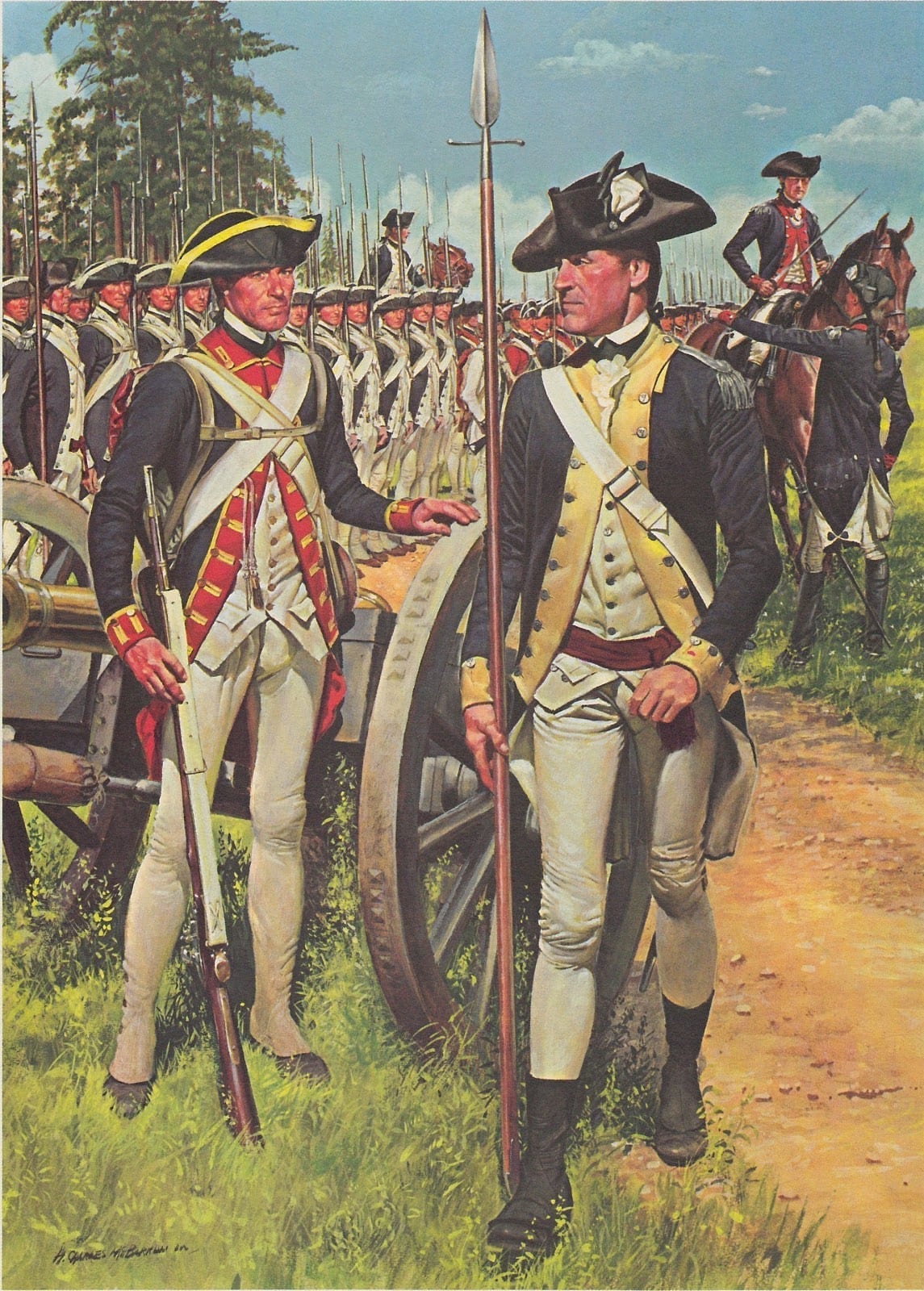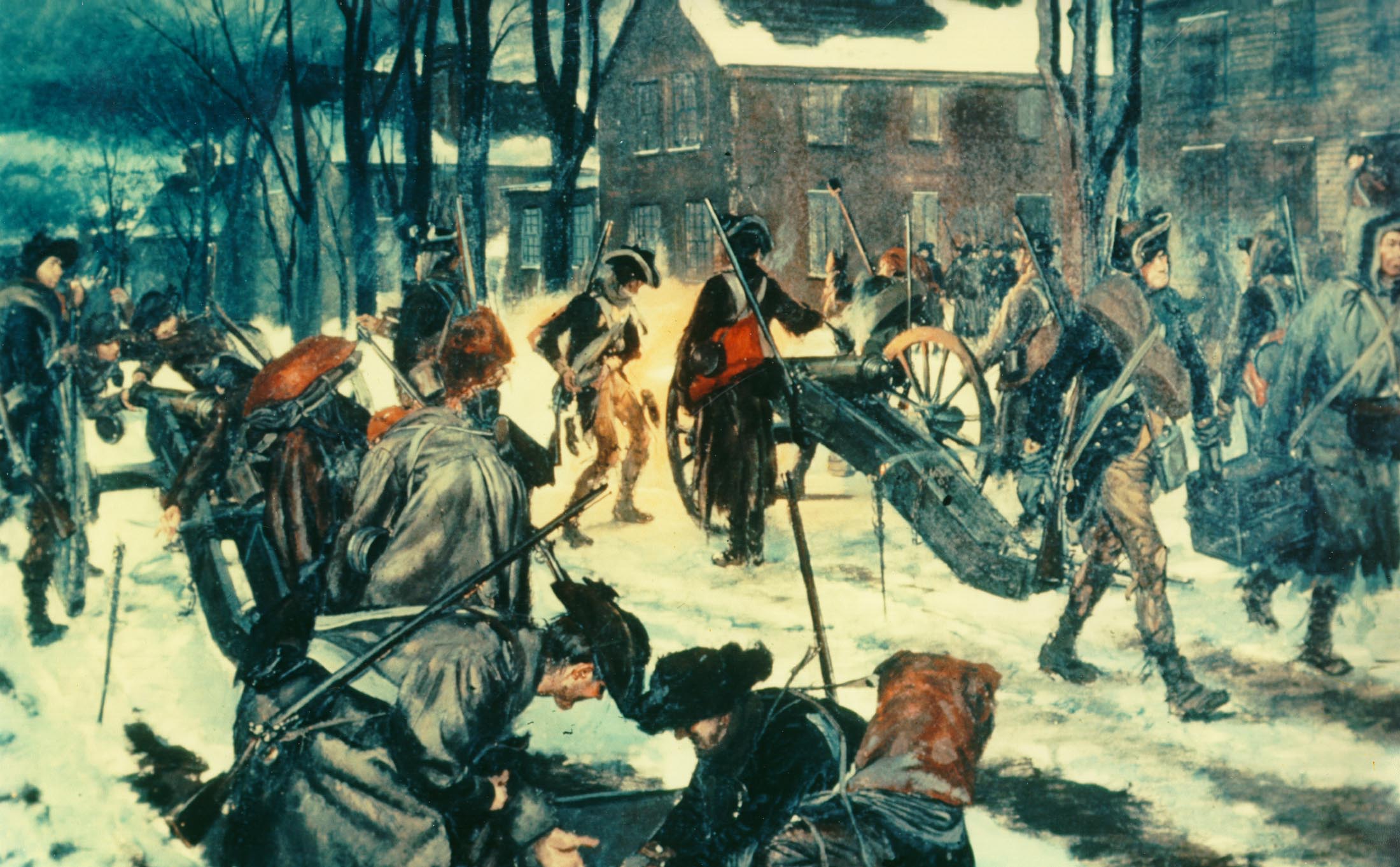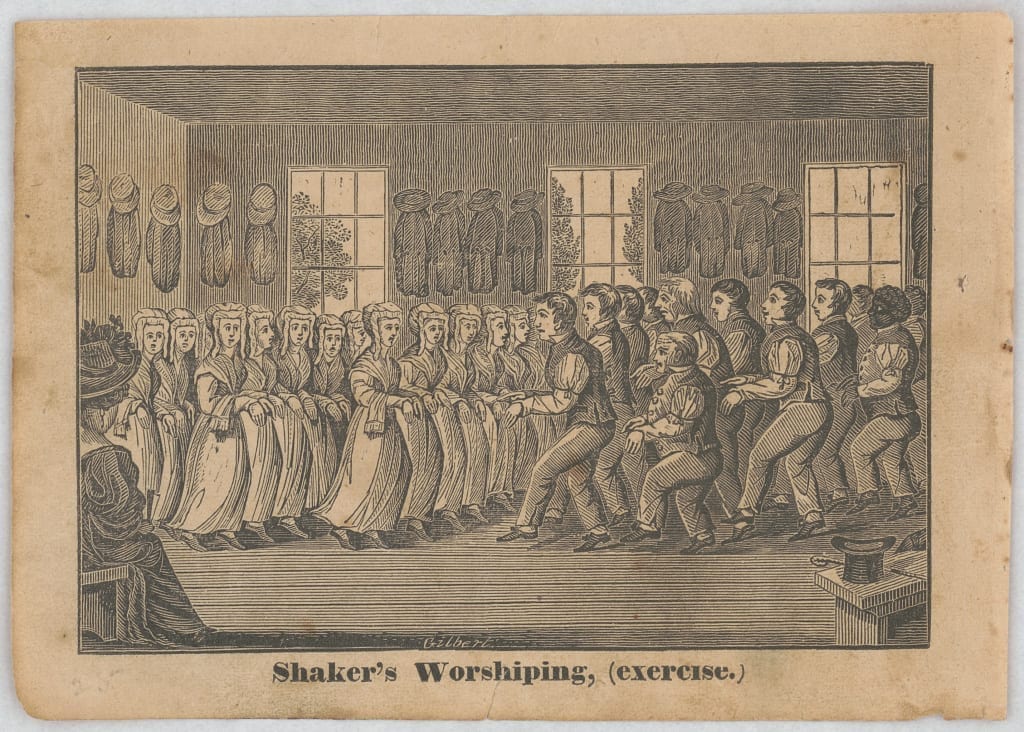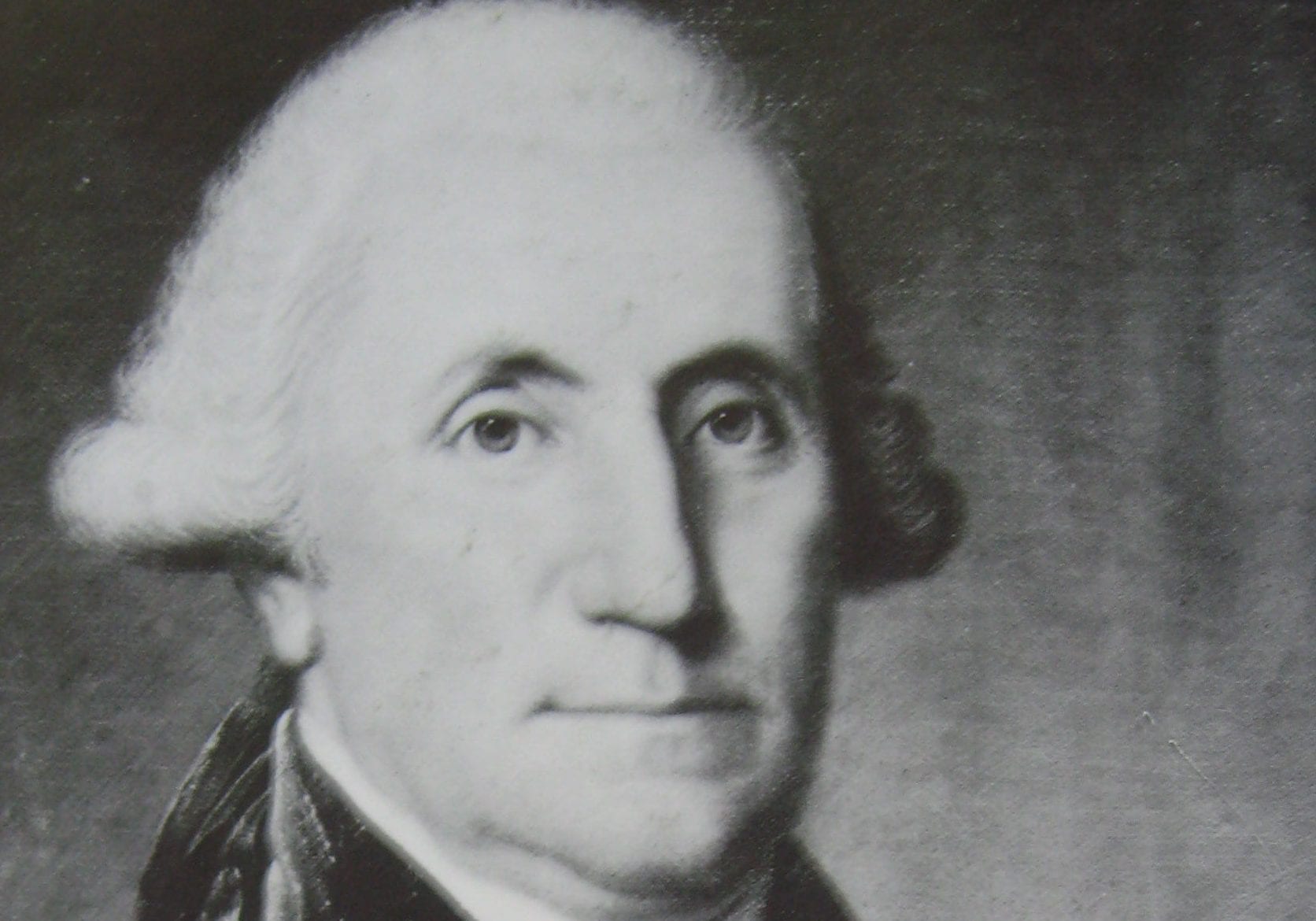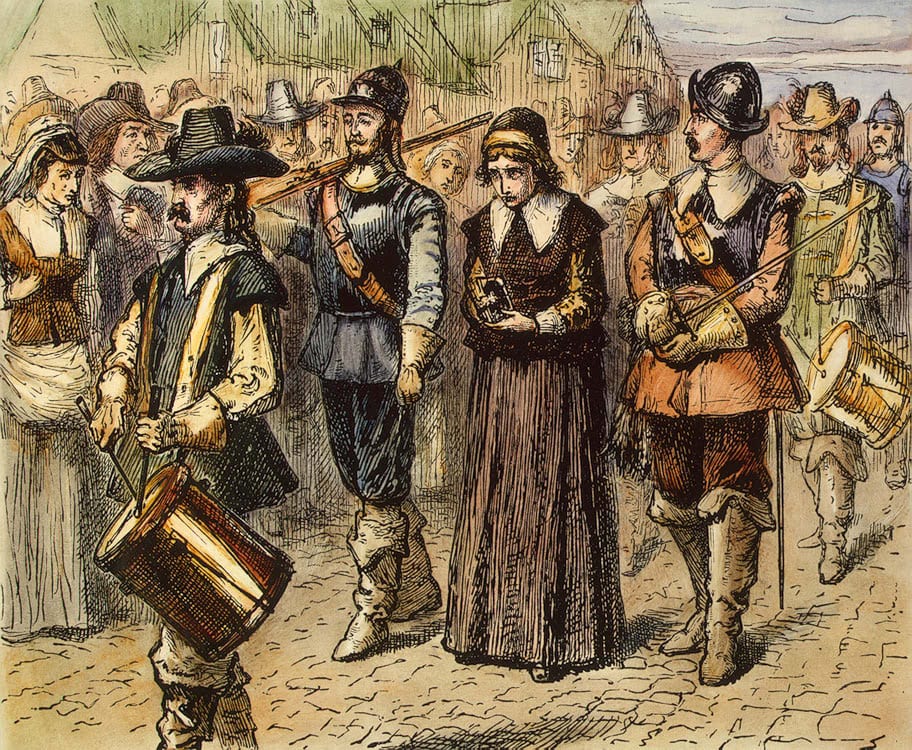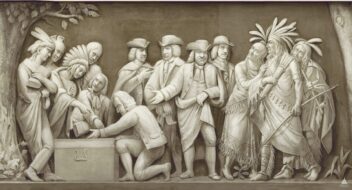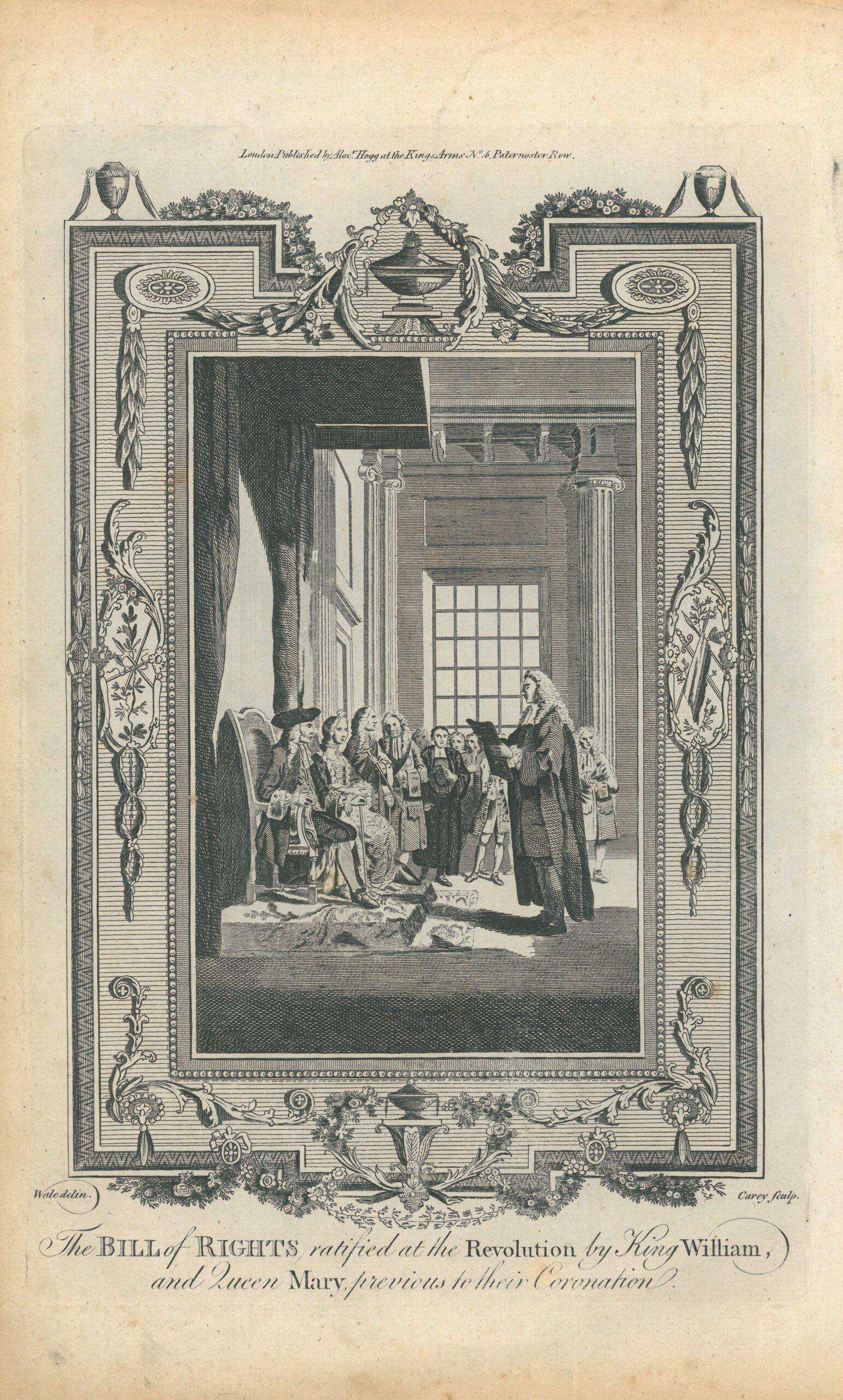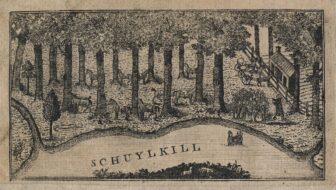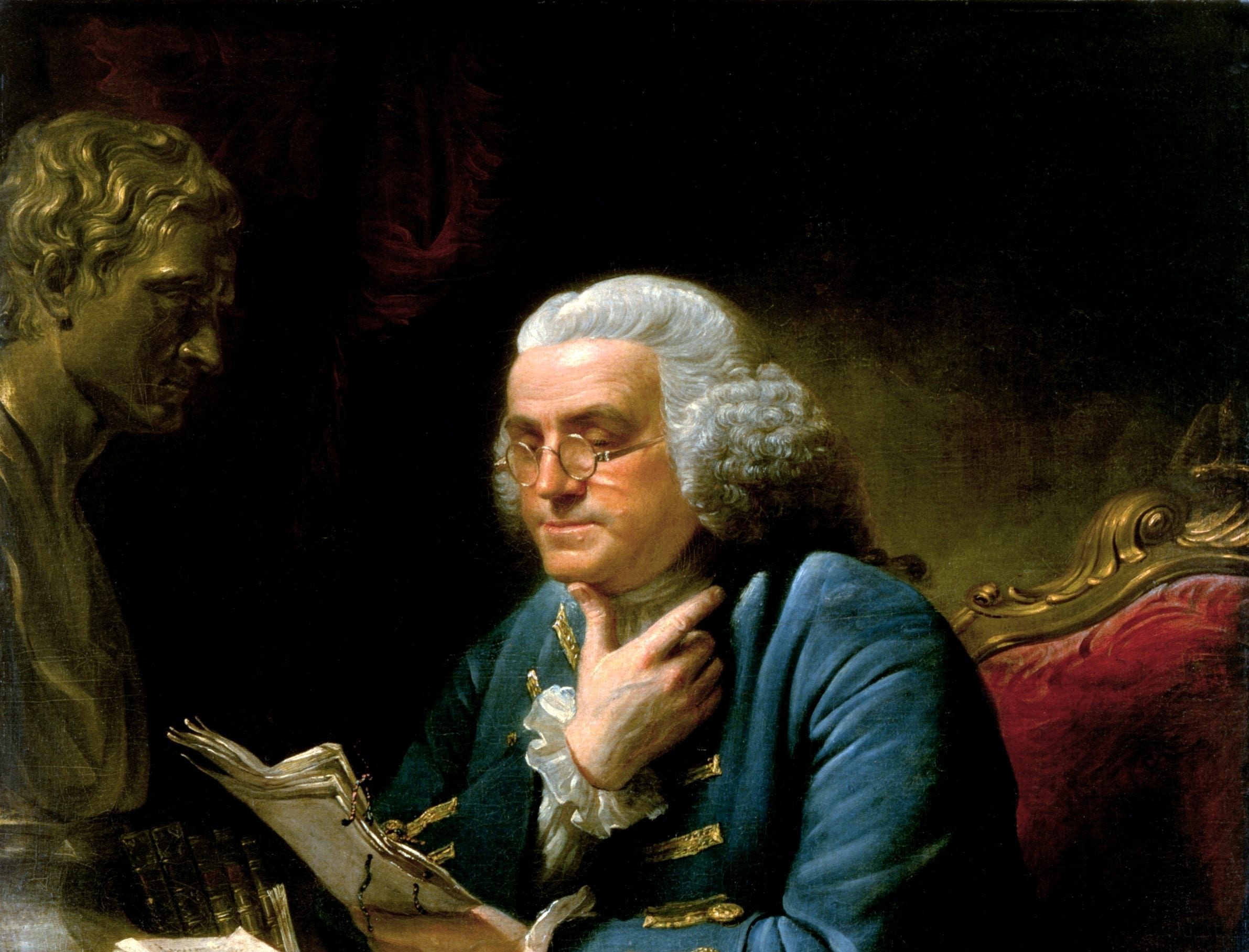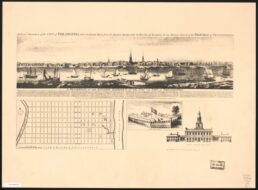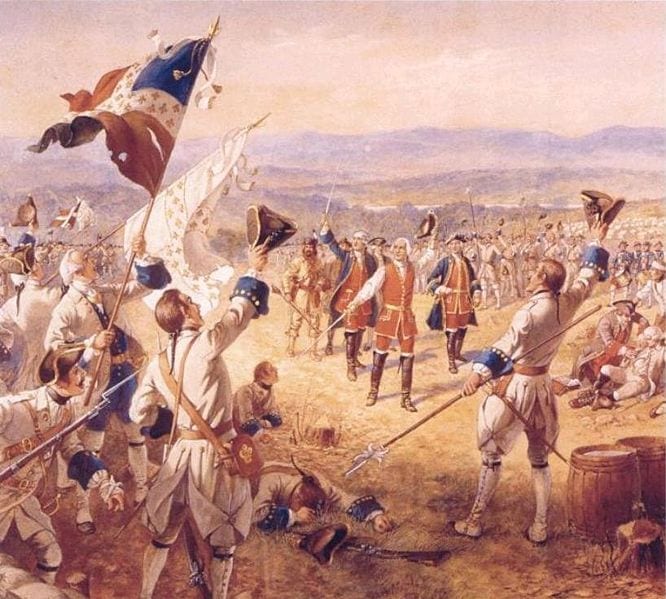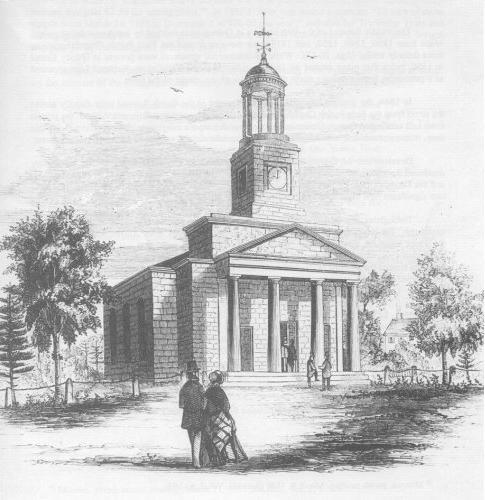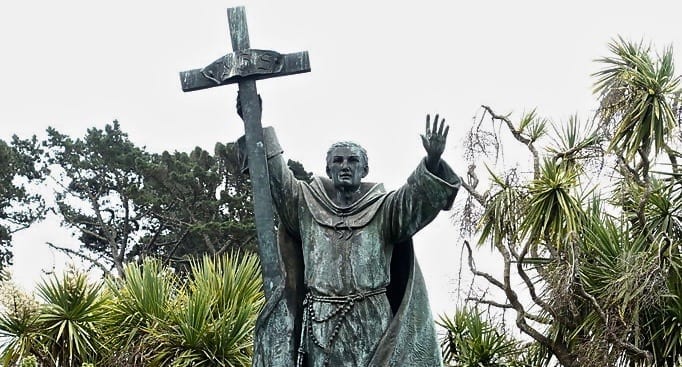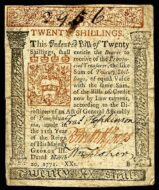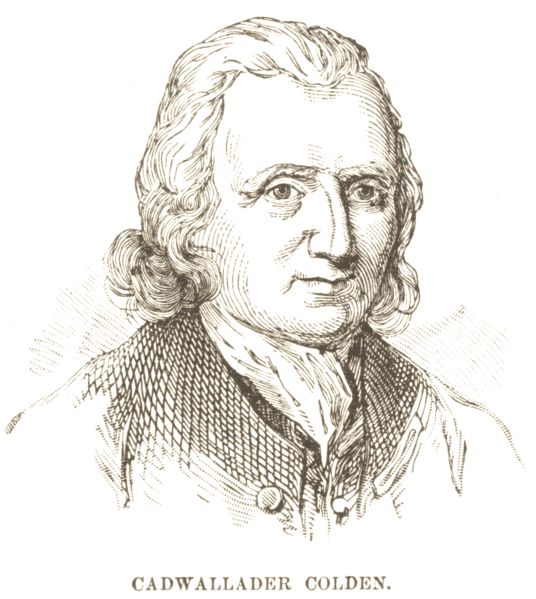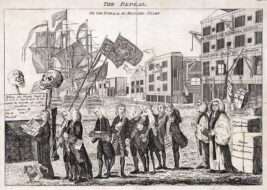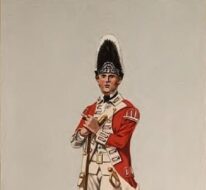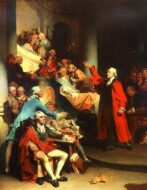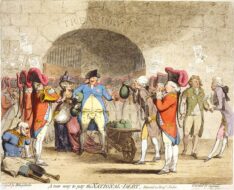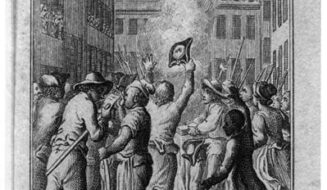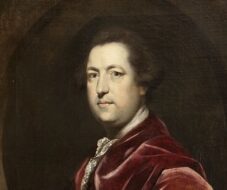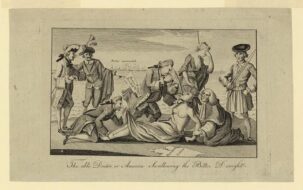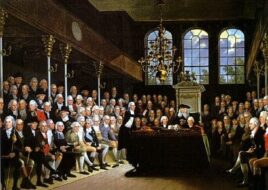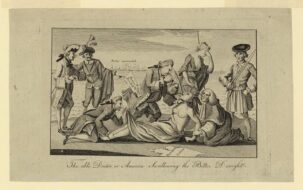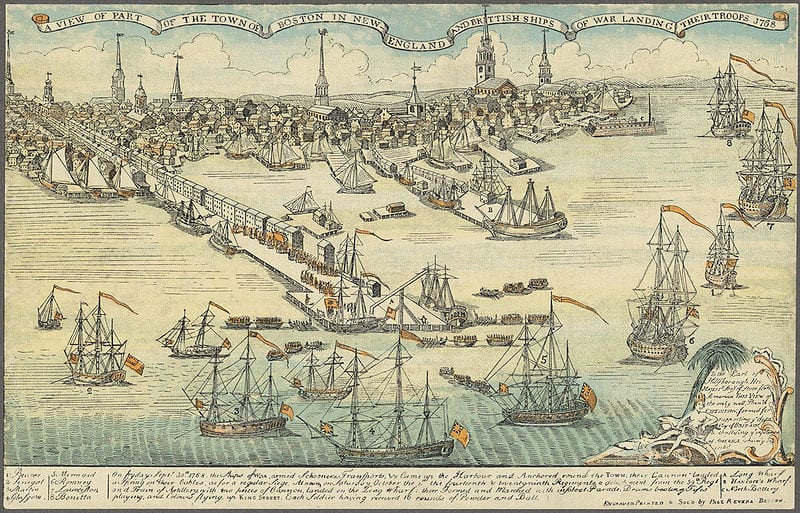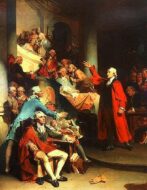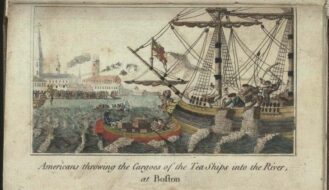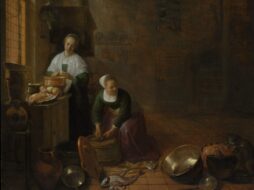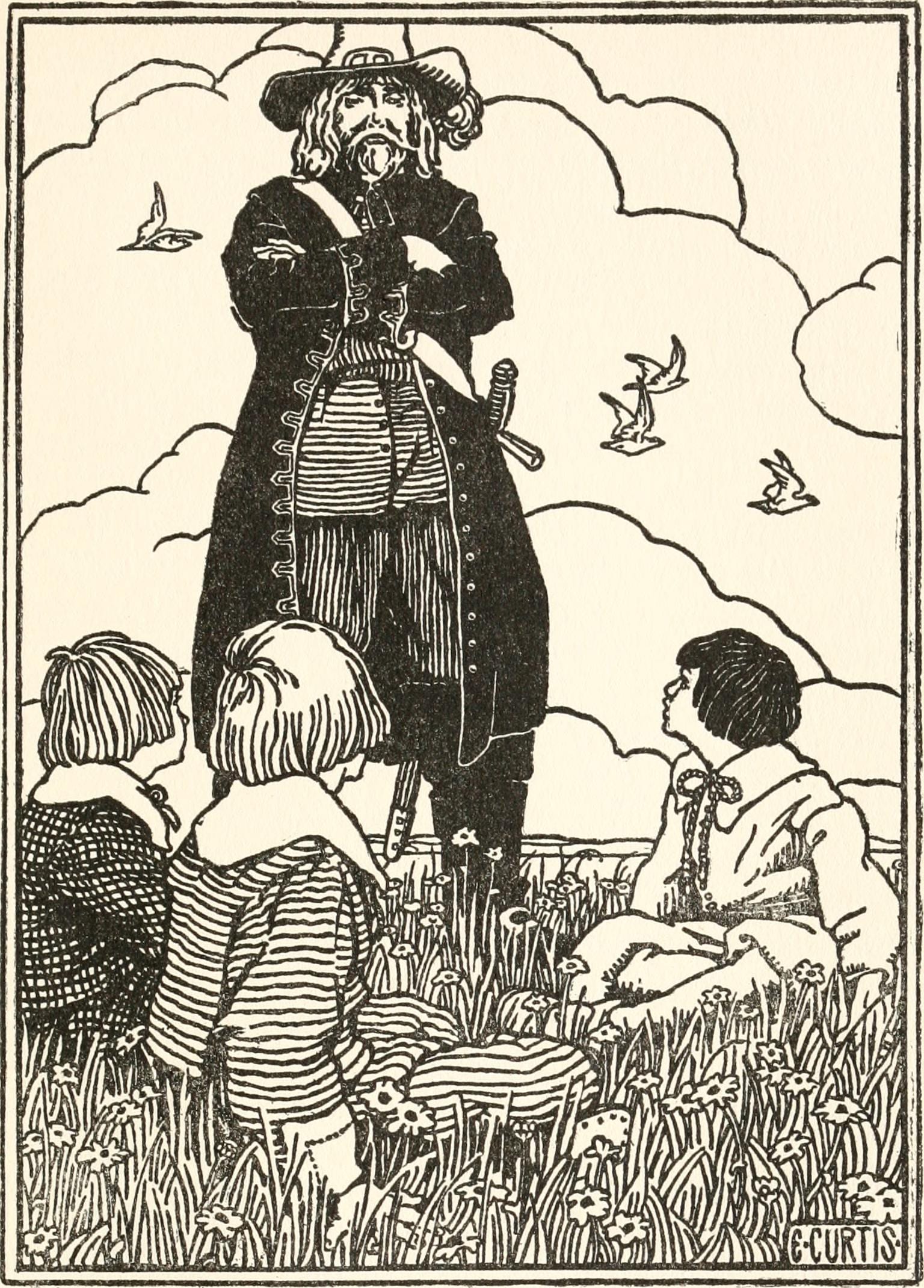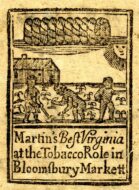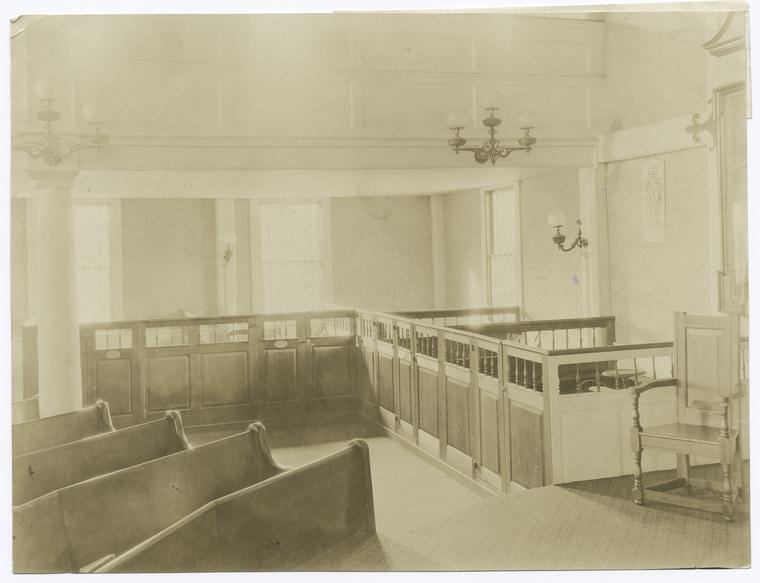
No study questions
No related resources
Introduction
Many (although not all) of the early colonists in New England were religious dissenters – persons who had separated from established churches in Great Britain – for whom the New World represented a haven from royal persecution. Particularly in the colonies of Plymouth and Massachusetts, shared religious commitments and the experience of persecution led community leaders to frame their colonies as quasi-utopian places for the faithful to prosper. Given the opportunity to create societies according to their own understandings, they did not hesitate to engage in radical social experiments meant to prove that “godliness” was not only a spiritual virtue but had practical implications for everyday life as well. From the beginning, ministers like Robert Cushman and civil magistrates like William Bradford and John Winthrop urged their citizens to recognize that they were drawn together for a purpose far beyond their own liberty, or even security, and to place the welfare of the community as a whole above their own.
Cushman and Winthrop, for example, offered advice to the colonists about how to best prepare themselves mentally and spiritually for the arduous task of a godly commonwealth. Both men urged their audiences to embrace the Christian ideal of “brotherly affection.” In response to the extraordinary demands of colonization, they urged their listeners to willingly be generous and abjure “self-love.” This was taken quite literally at Plymouth, where the London-based investors funding the colony required the colonists to agree that everything would be held in common for the first seven years, and then at the end of that term, all property/profits divided equally between colonists and investors. Although this experiment with communalism failed rather spectacularly and was abandoned after only three years, the ethic of neighborliness continued to be an important touchstone in both colonies throughout the seventeenth century.
New colonists continued to arrive regularly throughout the 1630s and 1640s, and as the population increased, the colonists struggled to balance their desire to remain true to their founders’ idealized notion of community with the realities of life and commerce. In Massachusetts Bay, for example, merchants such as Robert Keayne were expected to moderate their desire for profit with a due consideration of the extreme needs and limited means of their customers. Keayne, who was both a shrewd businessman and a devout member of his church, apparently struggled his whole life to meet this standard; at various times, he was admonished by both his congregation and the civil government for unjust business practices. This accusation apparently stung so deeply, Keayne used his last will and testament to present an extensive Apologia for his actions.
Richard D. Pierce, ed., “The Records of the First Church in Boston, 1630 – 1868,” Colonial Society of Massachusetts, Publications 39 (1961), 26, 29. Details of the case can be found in John Winthrop’s Journal: A History of New England, Volume 1, edited by James Kendall Hosmer (New York: Scribner, 1908), 315-318.
November 9, 1639:
At a general court1 held at Boston, great complaint was made of the oppression used in the country in sale of foreign commodities; and Mr. Robert Keayne, who kept a shop in Boston, was notoriously above others observed and complained of; and, being convented2, he was charged with many particulars; in some, for taking above six-pence in the shilling profit; and in some above eight-pence; and in some small things, above two for one; and being hereof convict (as appears by the records), he was fined 200£,3 which came thus to pass: The deputies considered apart4 of his fine, and set it at 200£[?]; the magistrates agree to but 100£. So, the court being divided, at length it was agreed, that his fine should be 200£, but he should pay but 100£, and the other should be respited to the further consideration of the next general court.
By this means the magistrates and deputies were brought to an accord, which otherwise had not been likely, and so much trouble might have grown, and the offender escaped censure. For the cry of the country was so great against oppression, and some of the elders5 and magistrates had declared such detestation of the corrupt practice of this man (which was the more observable because he was wealthy and sold dearer than most other tradesman, and for that he was of ill report for the like covetous practice in England, that incensed the deputies very much against him). And sure the course was very evil, especial circumstances considered: 1. He being an ancient professor of the gospel; 2. A man of eminent parts; 3. Wealthy, and having but one child; 4. Having come over for conscience’ sake, and for the advancement of the gospel here; 5. Having been formerly dealt with and admonished, both by private friends and also by some of the magistrates and elders, and having promised reformation; being a member of a church and commonwealth now in their infancy, and under the curious observation of all churches and civil states in the world.
These added much aggravation to his sin in the judgment of all men of understanding. Yet most of the magistrates (though they discerned of the offence clothed with all these circumstances) would have been more moderate in their censure: 1. Because there was no law in force to limit or direct men in point of profit in their trade. 2. Because it is the common practice, in all countries, for men to make use of advantages for raising the prices of their commodities. 3. Because (though he were chiefly aimed at, yet) he was not alone in this fault. 4. Because all men through the country, in sale of cattle, corn, labor, etc. were guilty of the like excess in prices. 5. Because a certain rule could not be found out for an equal rate between buyer and seller, though much labor had been bestowed in it, and diverse laws had been made, which, upon experience, were repealed, as being neither safe nor equal. Lastly, and especially, because the law of God appoints no other punishment but double restitution, and in some cases, as where the offender freely confesseth, and brings his offering, only half added to the principal.
After the court had censured him, the church in Boston called him also in question, where (as before he had done in the court) he did, with tears, acknowledge and bewail his covetous and corrupt heart, yet making some excuse for many of the particulars, which were charged upon him, as partly by pretense of ignorance of the true price of some wares, and chiefly by being misled by some false principles, as, 1. that if a man lost in one commodity, he might help himself in the price of another; 2. that if, through want of skill or other occasion, his commodity cost him more than the price of the market in England, he might then sell it for more than the price of the market in New England, etc. These things gave occasion to Mr. Cotton,6 in his public exercise the next lecture day, to lay open the error of such false principles, and to give some rules of direction in the case:
. . . The rules for trading were these: –
- A man may not sell above the current price, i.e., such a price as is usual in the time and place, and as another (who knows the worth of the commodity) would give for it, if he had occasion to use it. . . .
- When a man loseth in his commodity for want of skill, etc. he must look at it as his own fault or cross and therefore must not lay it upon another.
- When a man loseth by casualty of sea, or etc., it is a loss cast upon himself by providence, and he may not ease himself of it by casting it upon another; for so a man should seem to provide against all providences, etc., that he should never lose; but where there is a scarcity of the commodity, there men may raise their price; for now it is a hand of God upon the commodity, and not the person.
- A man may not ask any more for his commodity than his selling price.
. . .
The cause being debated by the church, some were earnest to have him excommunicated; but the most thought an admonition would be sufficient. . . .
November 26, 1639: Being a day of public fast[ing] for our congregation, our brother Mr. Robert Keayne was admonished by our pastor in the name of the church for selling his wares at excessive rates, to the dishonor of God’s Name, the Offence of the General Court, and the public scandal of the country.
May 7, 1640: Being a day of Fasting etc., whereas our brother Mr. Robert Keayne was on the 26th day of the 9th Month 1639 being likewise a day of public fast admonished for selling wares at excessive rates; upon his penitential acknowledgment thereof this day and promise of further satisfaction to any that have just offence against him, he is now become reconciled to the Church.
- 1. The Massachusetts legislature throughout the colonial period was known as the General Court (to distinguish it from the county courts). It consisted of an upper house, whose delegates were known as “magistrates,” and a lower house, whose delegates were known as “deputies.”
- 2. That is, a member of a particular congregation, and thereby bound to act in accordance with their teachings, as well as accept their oversight and discipline.
- 3. Roughly $50,000 in 2018.
- 4. Separately from the magistrates; the Massachusetts legislature, known as the General Court, often sat as a single body, so this separation was noteworthy.
- 5. Within the church polity of Massachusetts, an elder was an elected leader of a particular congregation, either in a teaching capacity (ministers) or in an administrative one (laymen). Elders, whether ministers or laymen, were men respected for their spiritual wisdom and often called upon to offer counsel to the General Court.
- 6. John Cotton (1585–1652), a leading minister in the Massachusetts Bay colony.
The Massachusetts Body of Liberties
December 30, 1641
Conversation-based seminars for collegial PD, one-day and multi-day seminars, graduate credit seminars (MA degree), online and in-person.
